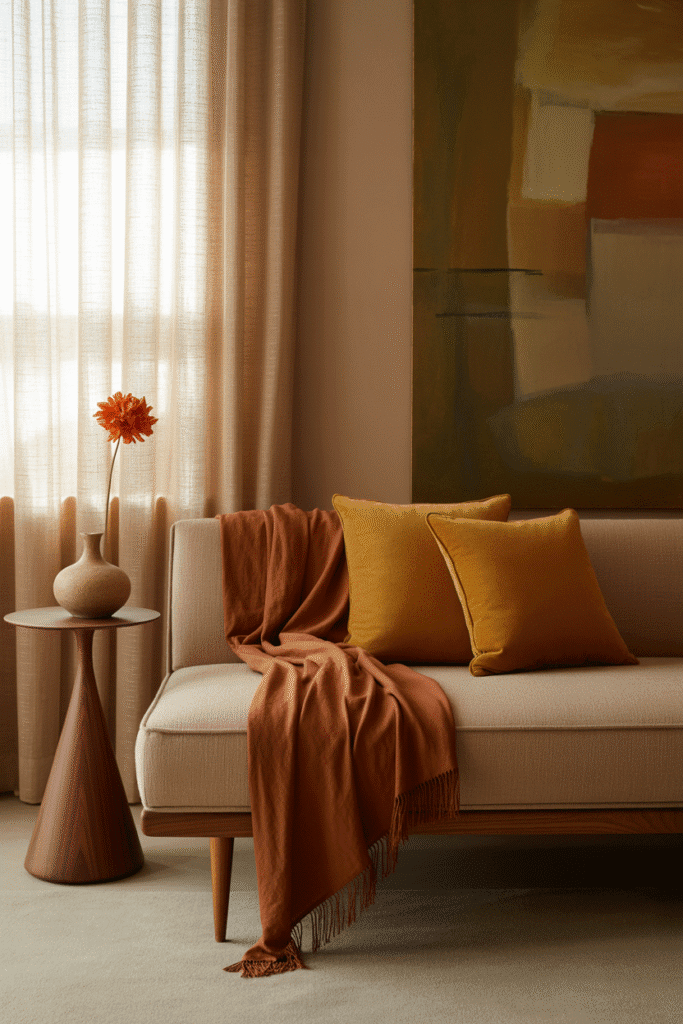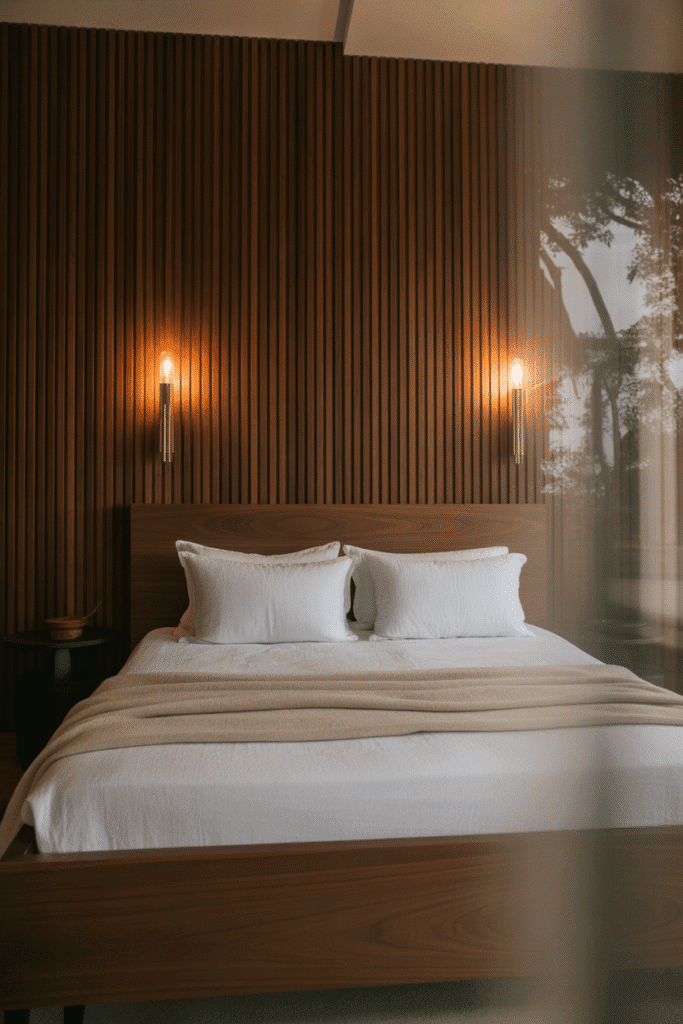Looking for organic modern beach house inspiration? Explore 17 cozy, stylish, and Pinterest-worthy ideas with natural textures, neutral palettes, and coastal charm.
Imagine stepping into a home where every detail feels like an extension of the ocean just outside your window. Sunlight filters through sheer linen curtains, soft wood tones balance the crispness of modern design, and the salty breeze carries a sense of calm. This is the essence of the organic modern beach house — a design style that fuses minimalist elegance with the warmth of nature and the tranquility of coastal living.
Unlike overly themed nautical décor, organic modern focuses on simplicity, texture, and natural materials, letting your home feel like a true sanctuary. It’s not about filling your rooms with seashells and anchors — it’s about capturing the spirit of the sea through design choices that are both subtle and sophisticated.
In this blog, we’ll explore 17 carefully curated ideas to help you design or refresh your beach house. Each point offers expert suggestions, styling hacks, and practical tips so you can create a home that feels not just beautiful, but also livable. Whether you’re near the shore or miles away, these ideas will bring that organic coastal calm right into your space.
Start with a Neutral Color Palette
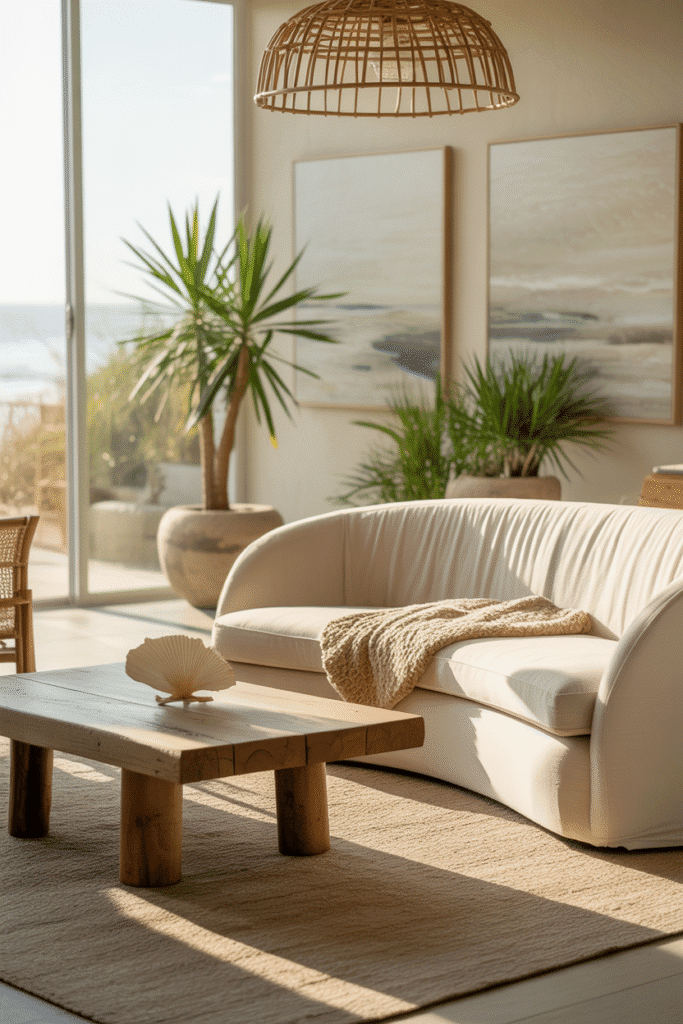
Your base colors should reflect the natural beauty of the coastline. Choose sandy beiges, driftwood grays, soft whites, and muted taupes. These tones create a calming canvas that allows other textures and accents to stand out. An expert trick is to paint walls in warmer whites (instead of stark ones), which makes the space feel softer and less clinical. From there, layer natural textures like linen, wood, and stone to add depth without overwhelming the eye.
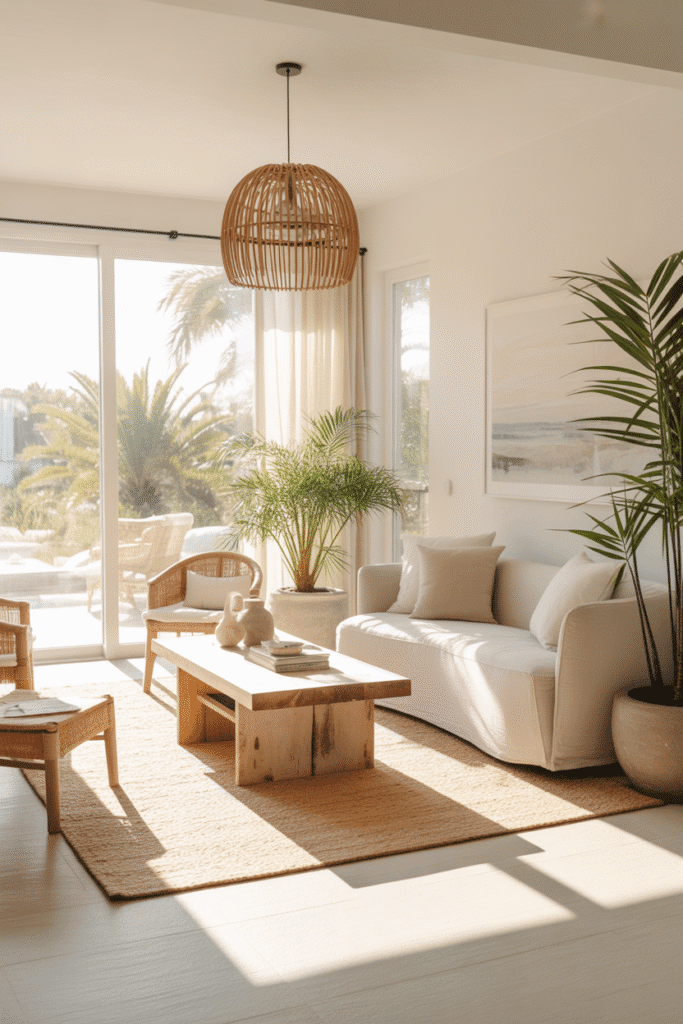
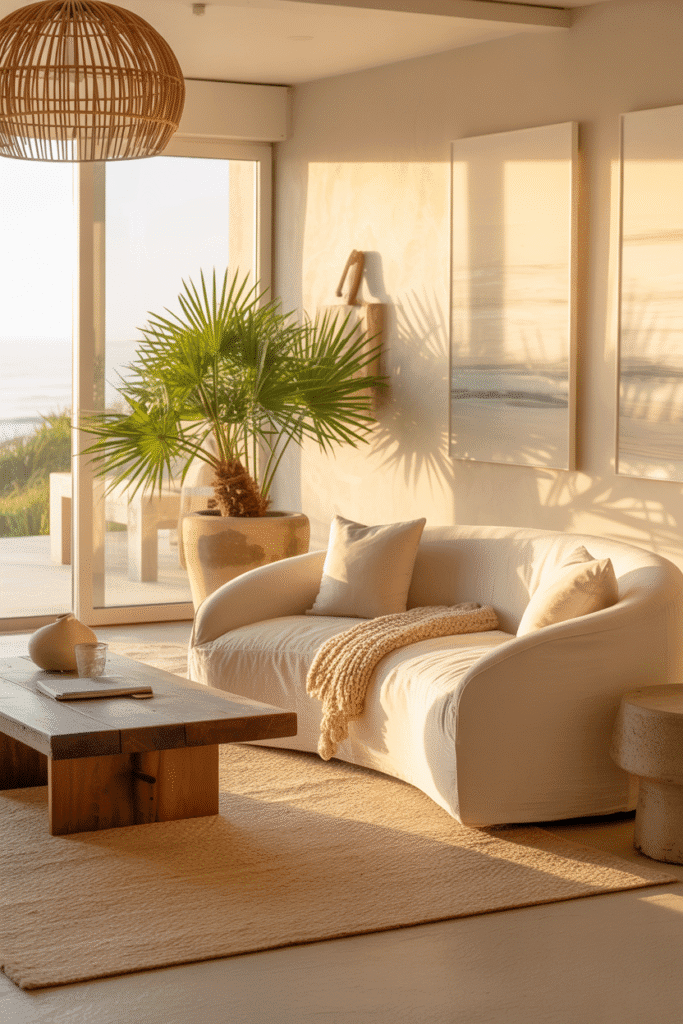
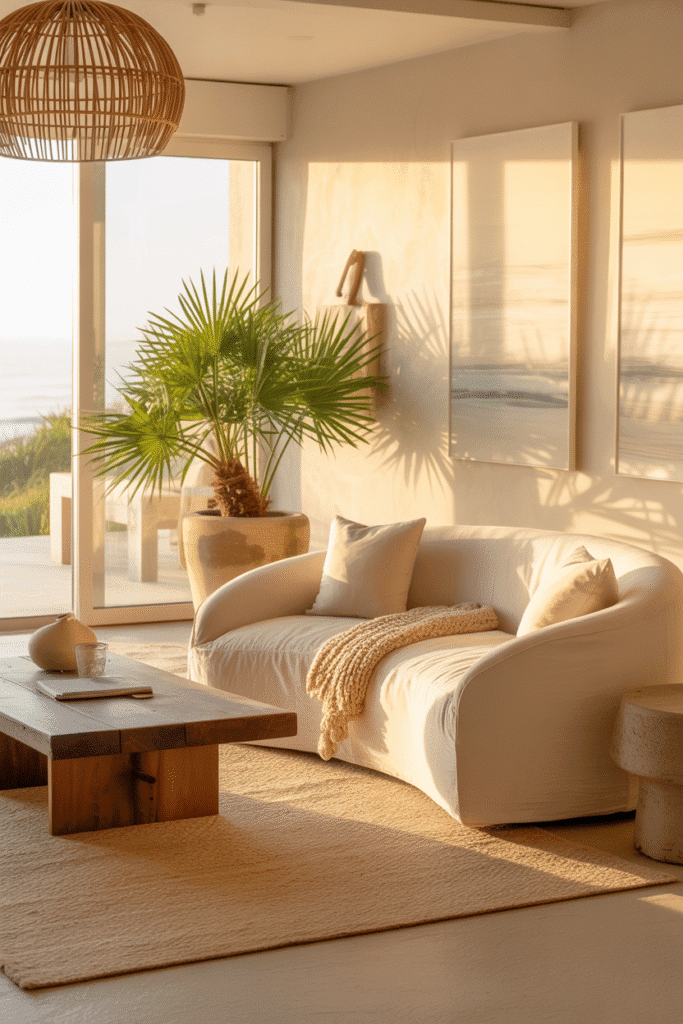
Incorporate Natural Wood Accents
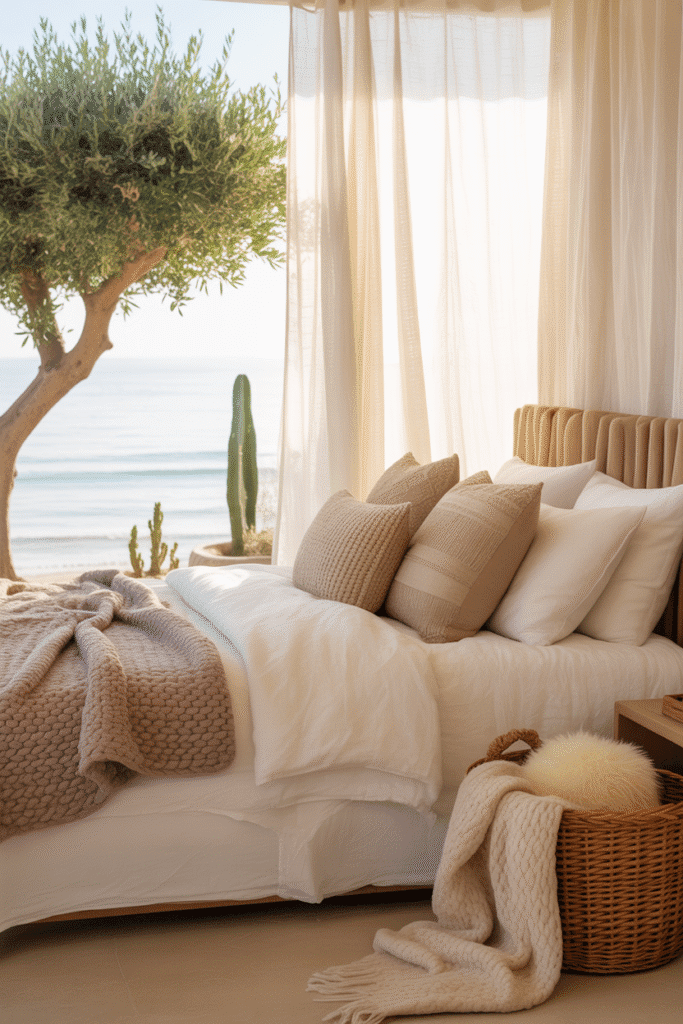
Wood is the heart of organic modern design. Opt for oak, ash, or reclaimed driftwood in your flooring, ceiling beams, or coffee tables. A pro tip is to balance lighter woods (like white oak) with a few darker tones to keep the space grounded. For beach houses, avoid glossy finishes — instead, use matte or raw textures that highlight the grain of the wood and feel more organic.
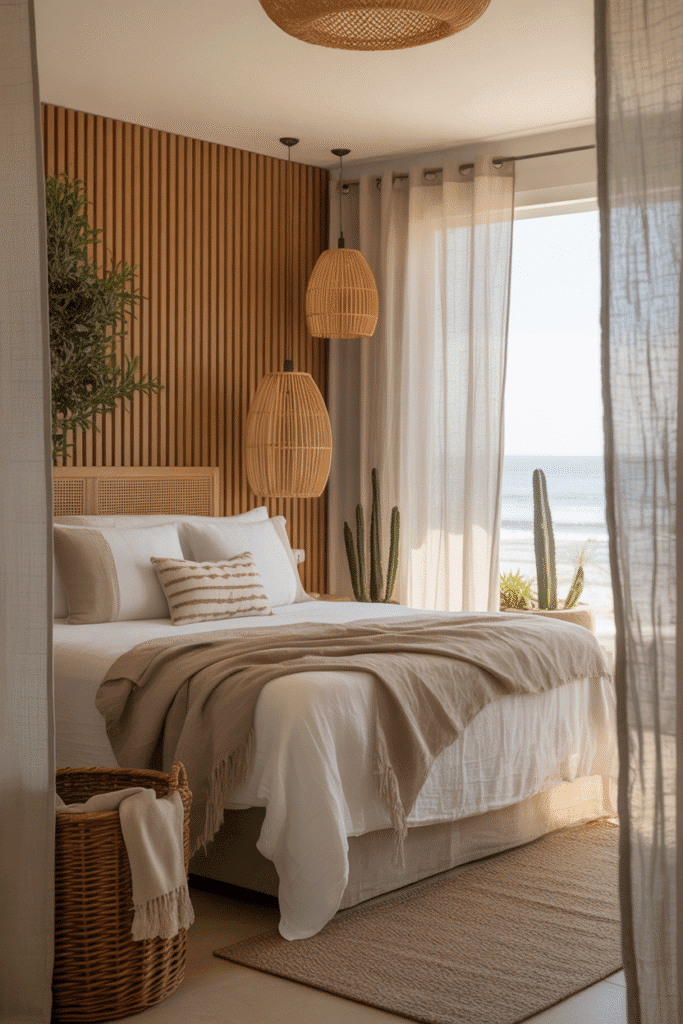
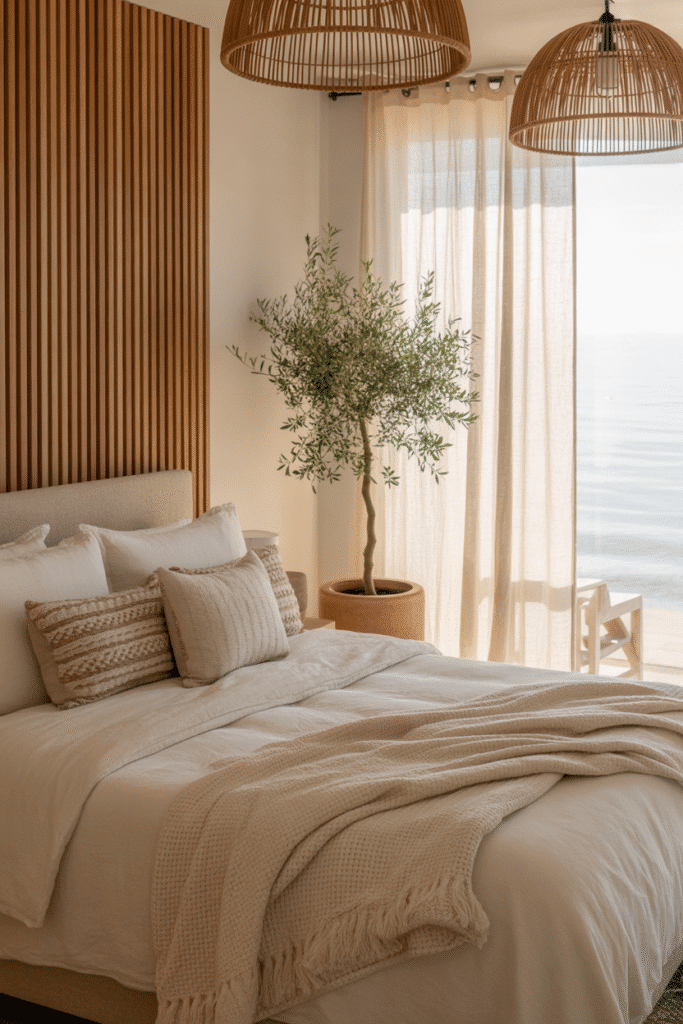
Use Linen and Cotton Textiles
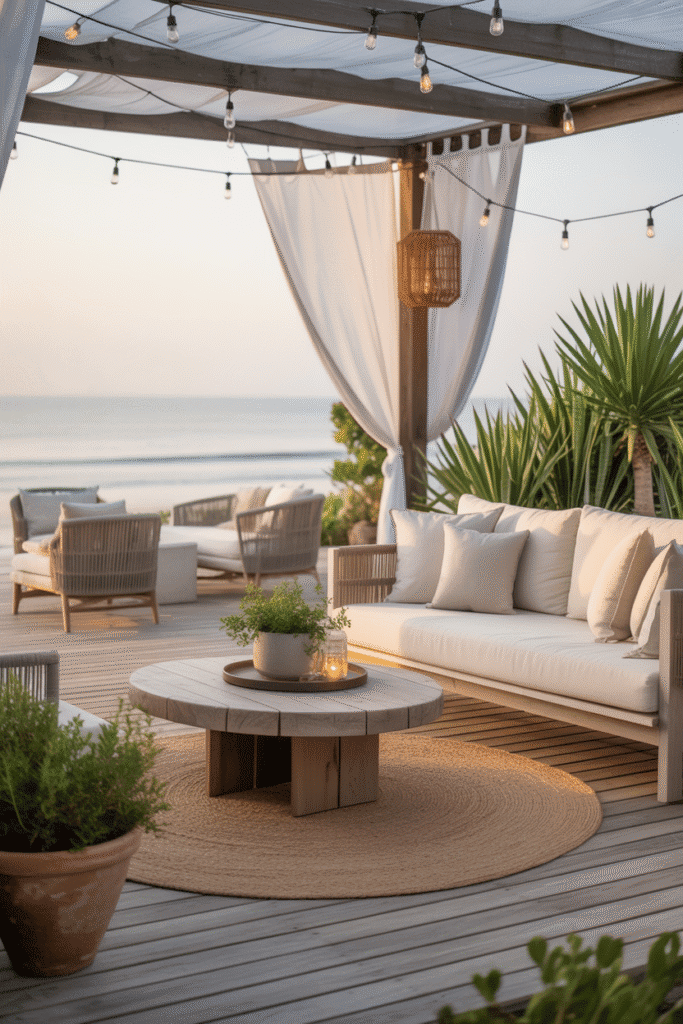
Fabric plays a big role in setting the mood. Swap out heavy drapes or synthetic materials for lightweight linens and cottons. Use linen curtains that float with the sea breeze, cotton slipcovers for a relaxed seating vibe, and linen bedding for bedrooms. To create variety, mix textures: pair smooth linen with chunky cotton knits or woven throws. This combination makes the home feel cozy while staying breathable in humid coastal climates.
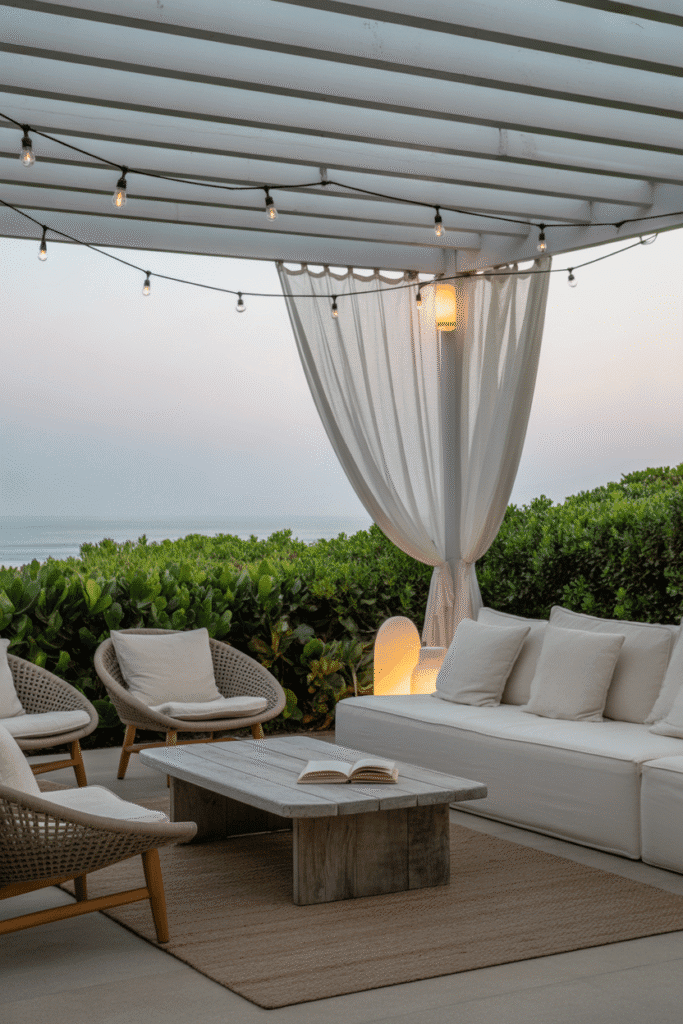
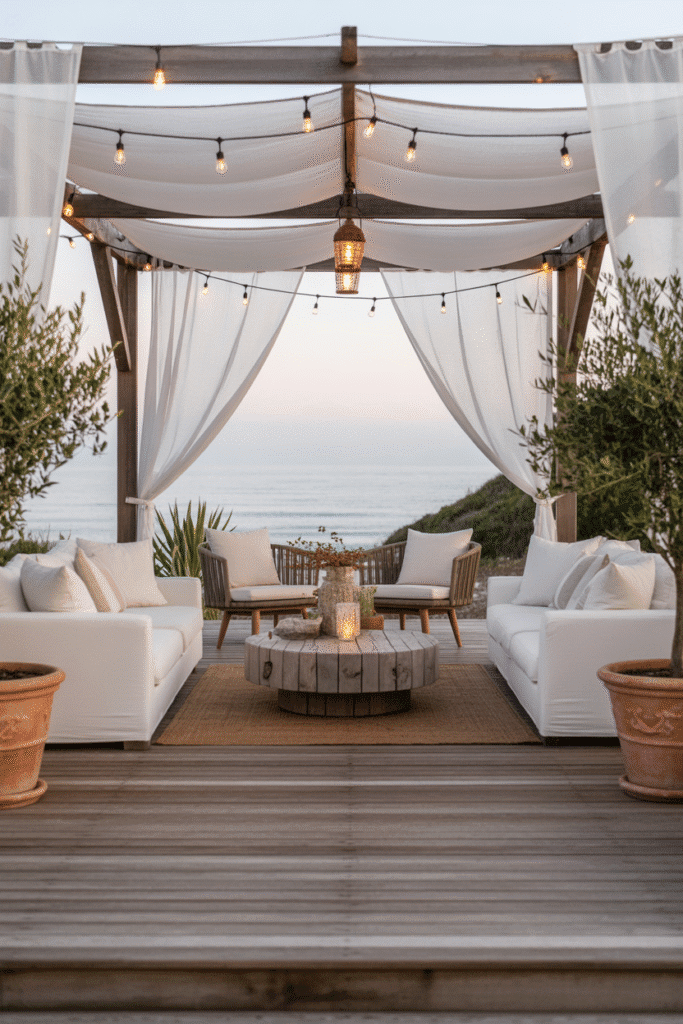
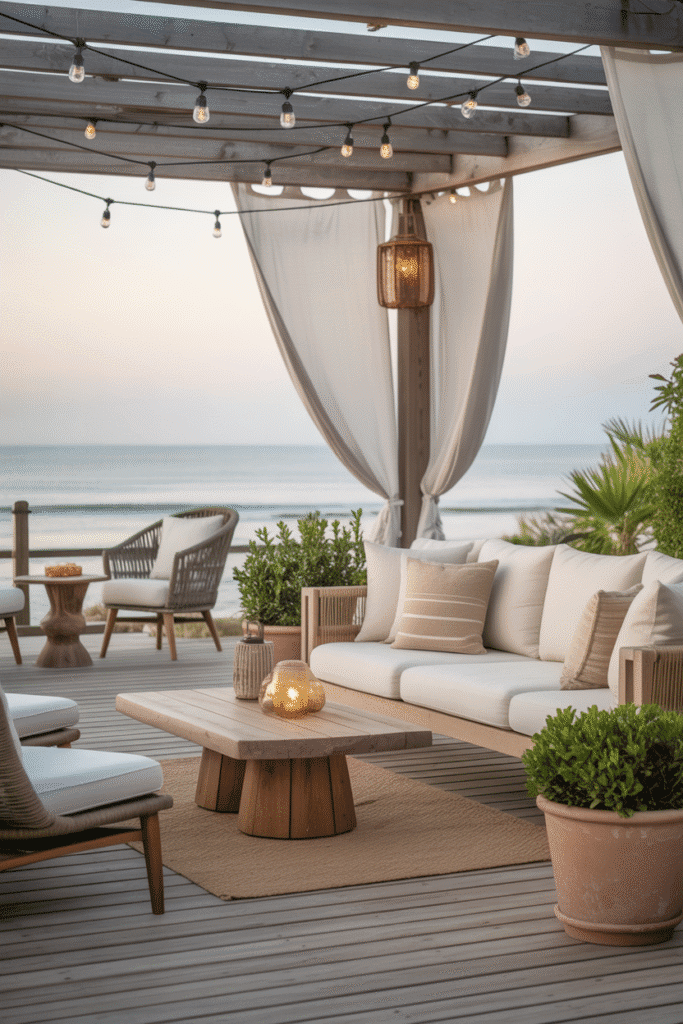
Choose Coastal-Inspired Lighting Fixtures
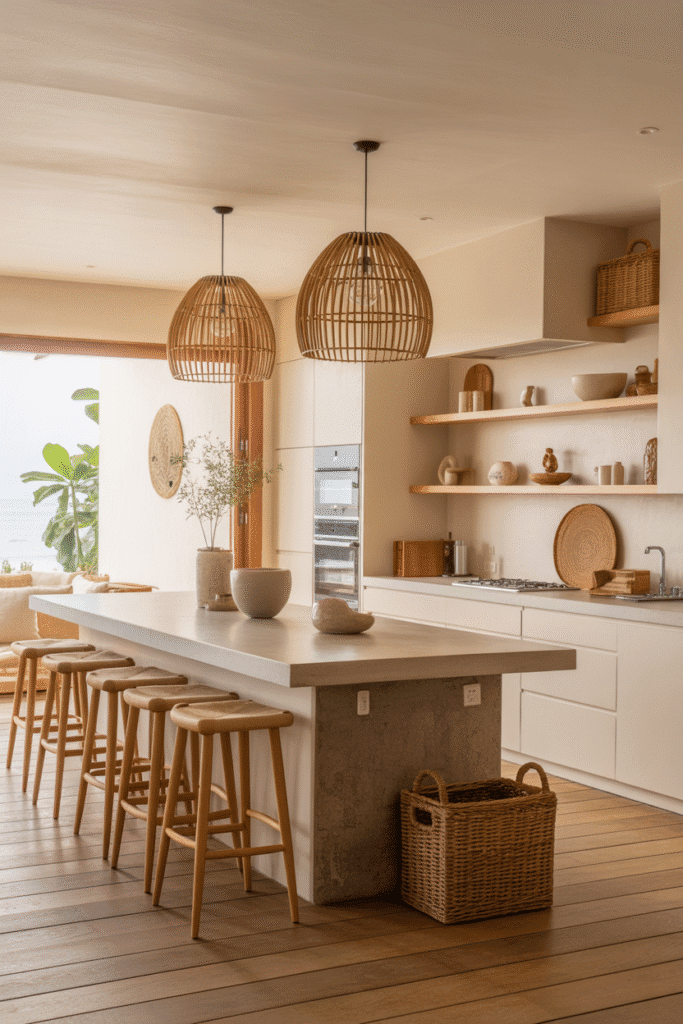
Lighting is more than function — it’s design. In an organic modern beach house, use woven rattan pendants, driftwood lamps, or frosted glass globes to echo natural materials. Experts often recommend layering lighting: overhead pendants for general illumination, wall sconces for warmth, and table lamps for coziness. If your home has large windows, maximize natural light during the day, then switch to warm-toned LED bulbs at night for a soft, inviting glow.
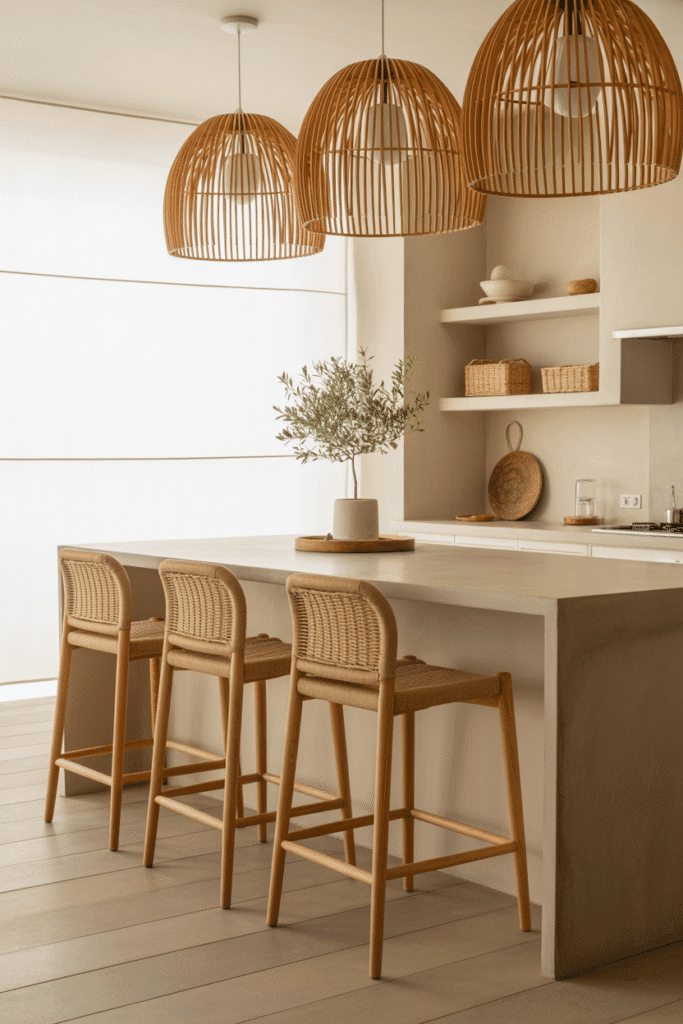
Embrace Open-Concept Living
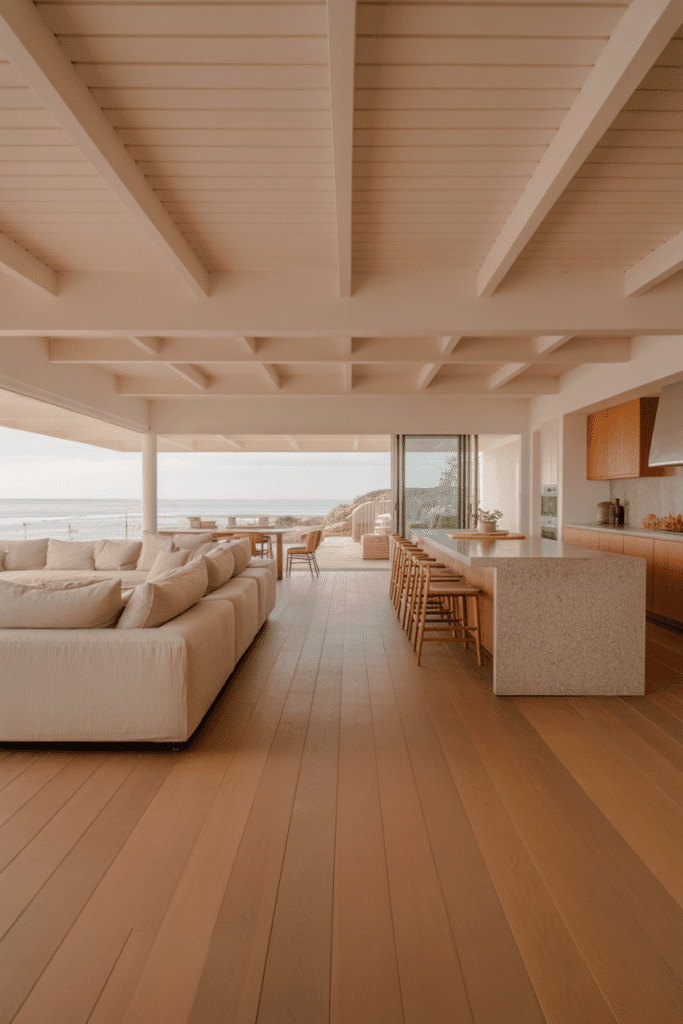
Beach houses thrive on open space and airflow. Knock down unnecessary partitions to create a free-flowing floor plan that connects the kitchen, dining, and living areas. Experts suggest using consistent flooring (like wide-plank wood or polished concrete) throughout the main floor to visually tie spaces together. This not only maximizes natural light but also gives the home a seamless, uncluttered look — exactly what organic modern is about.
Add Indoor Plants for Freshness
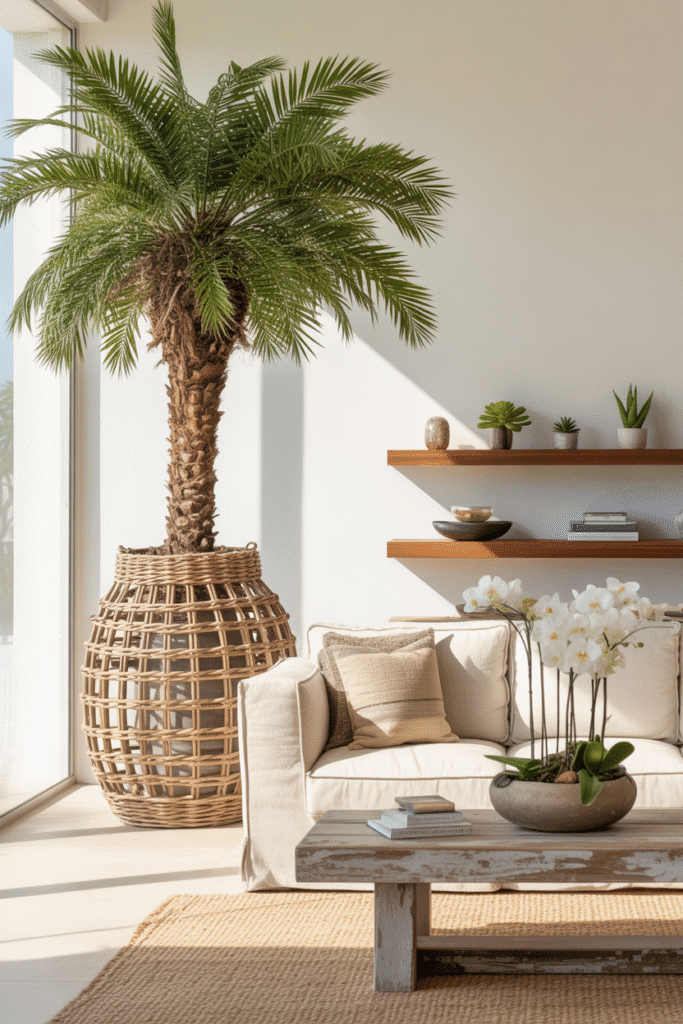
Plants instantly breathe life into a coastal home. Choose palm trees, olive plants, or tall snake plants to add greenery that thrives indoors. Large planters in natural clay or woven baskets keep the look organic. Pro tip: group plants of different heights together for a lush effect. For small spaces, hang trailing plants like pothos or ivy in woven macrame holders. Plants also improve air quality, making your beach house feel fresher and more connected to nature.
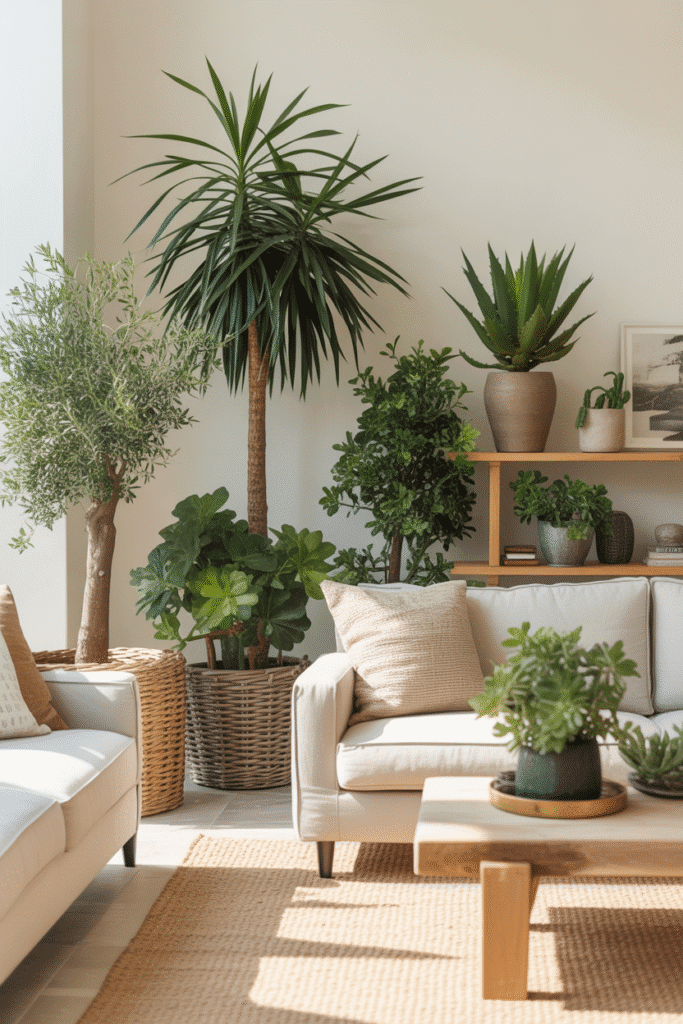
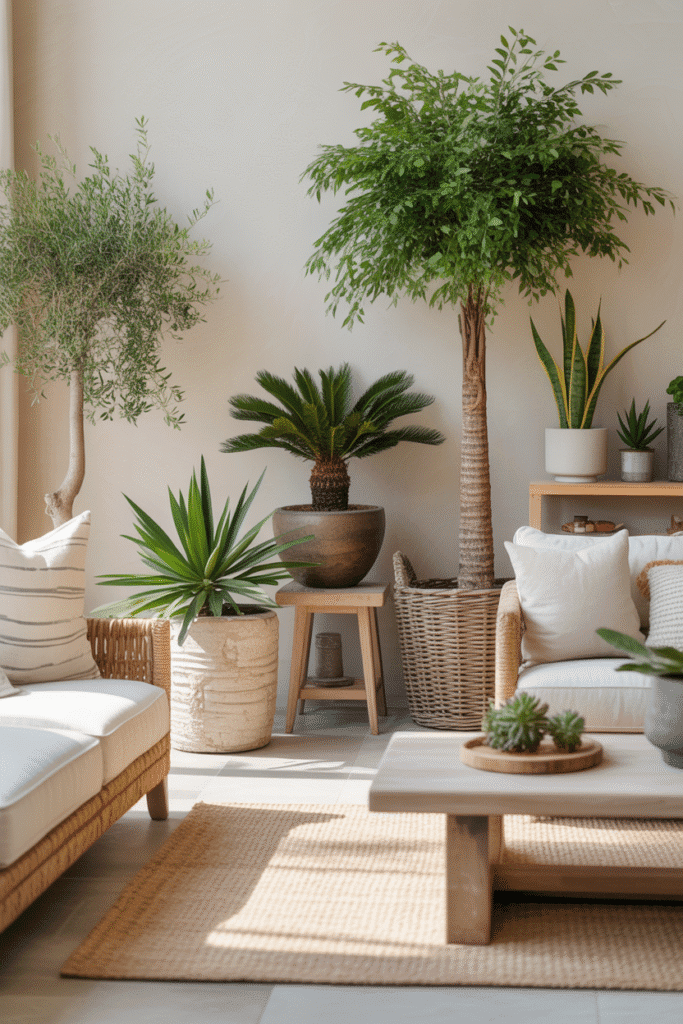
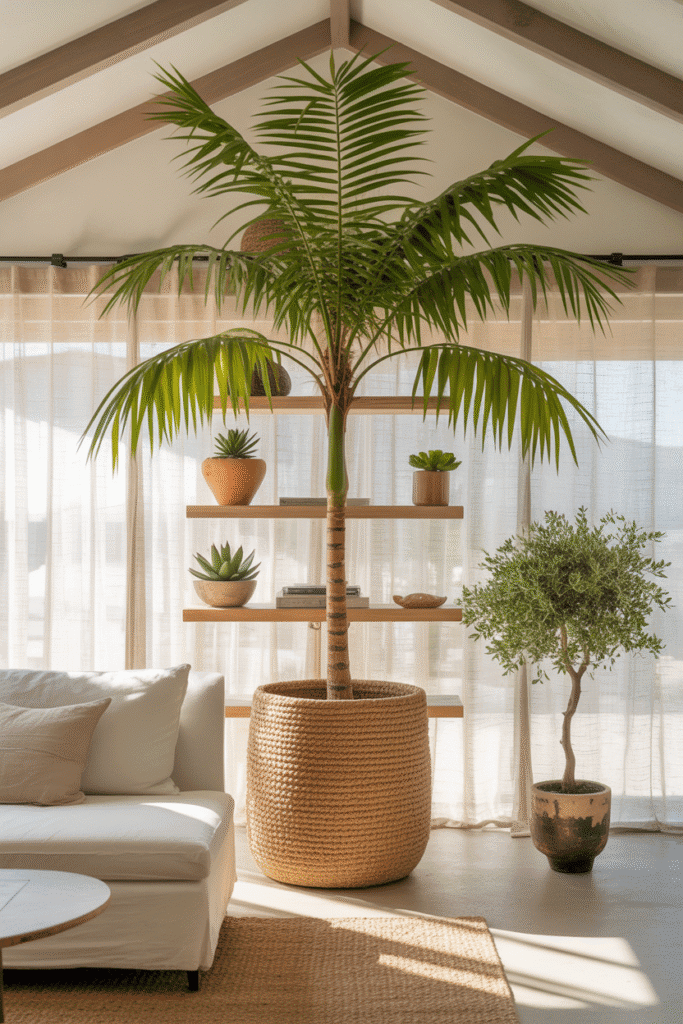
Maximize Ocean Views with Large Windows
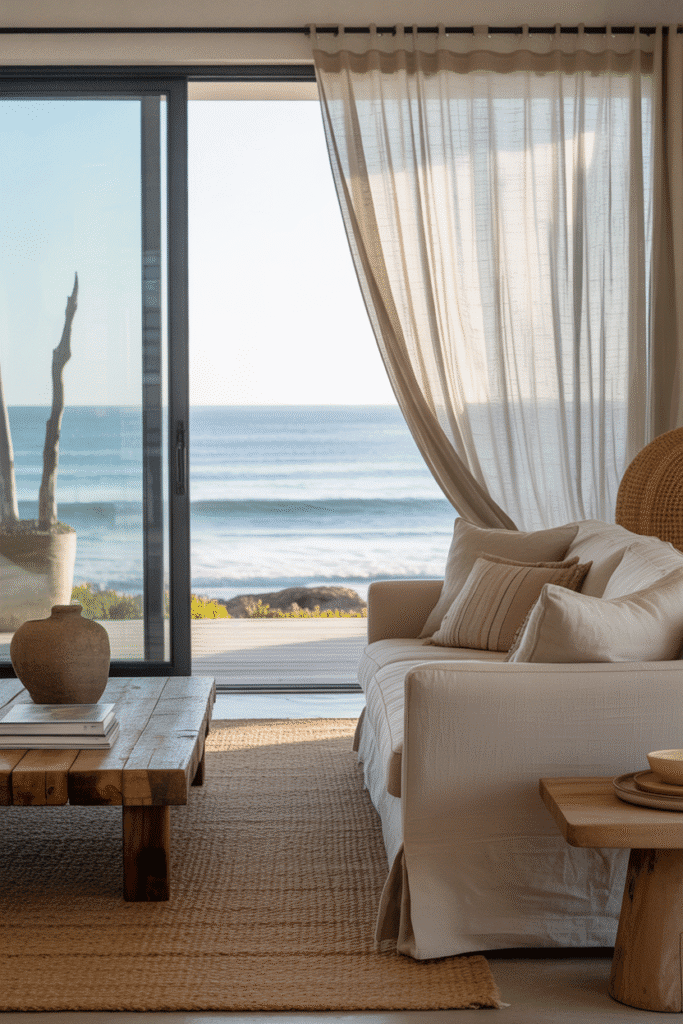
If your home is near the ocean, make the most of it by installing floor-to-ceiling windows or sliding glass doors. These blur the line between indoors and outdoors, a key principle of organic modern design. If you don’t live by the sea, large windows still help capture light and create that airy, coastal feel. Keep window treatments minimal — sheer linen panels or woven shades allow light to filter through without blocking the view.
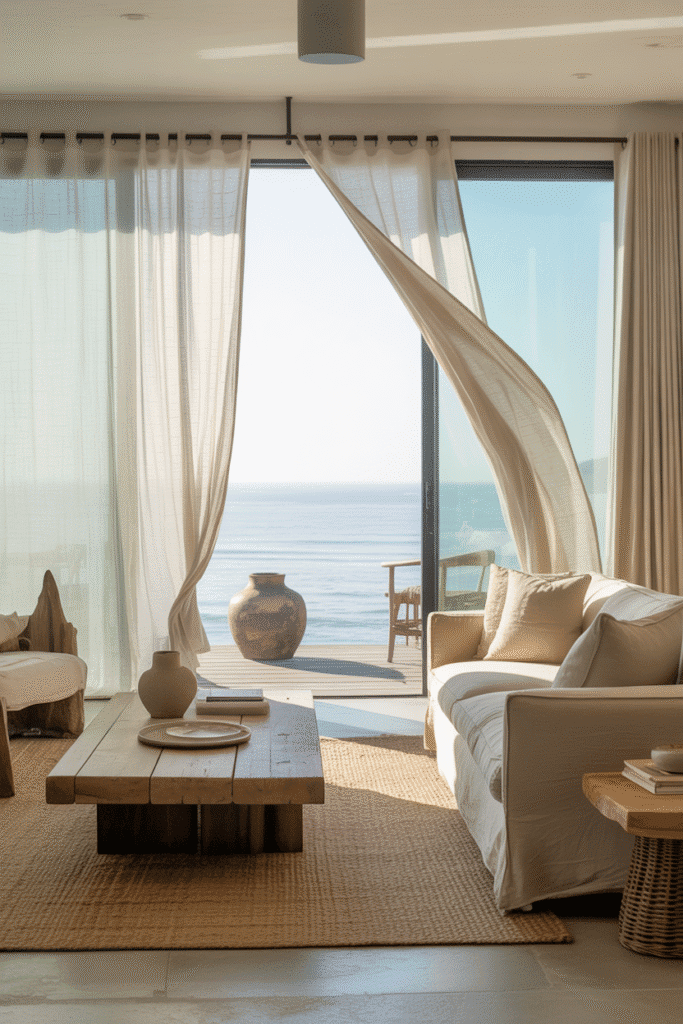
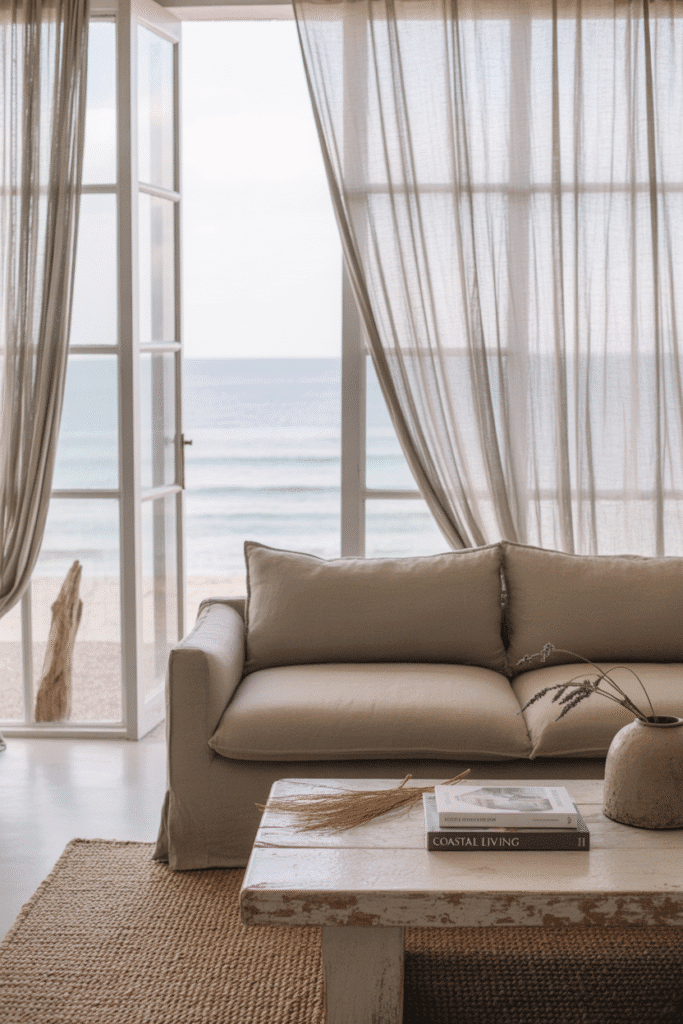
Balance with Stone and Concrete Elements
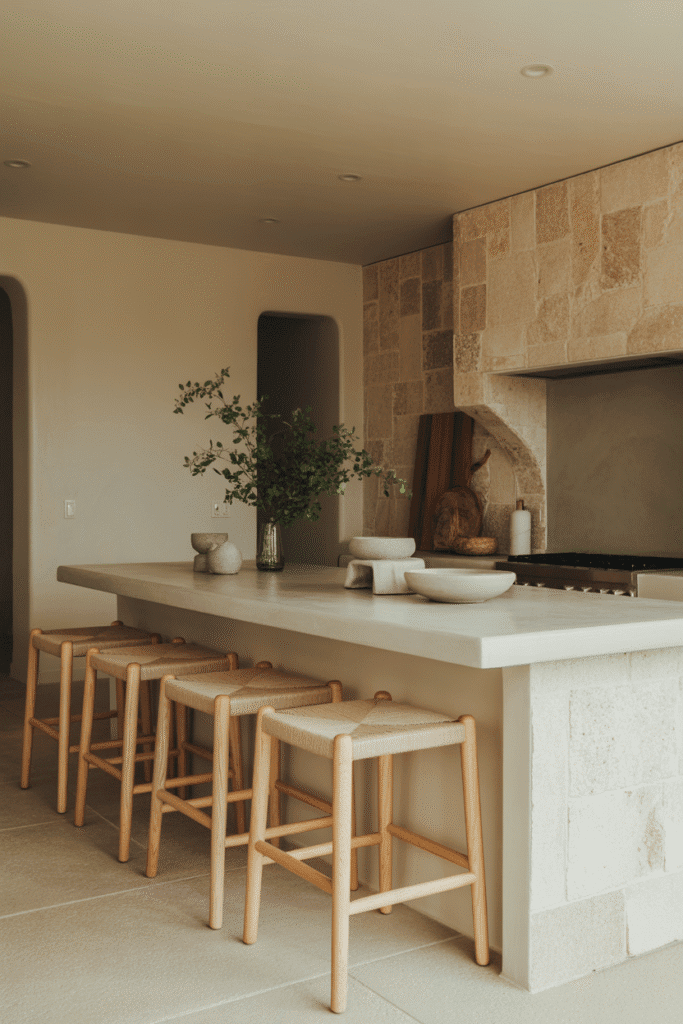
While wood softens a space, stone and concrete ground it. Use a stone fireplace, concrete countertops, or travertine tiles to bring in natural solidity. An expert design trick is to contrast smooth concrete floors with plush rugs, creating balance between hard and soft elements. Neutral-toned stone also reflects coastal textures like sandy beaches or rocky shores, keeping the design cohesive.
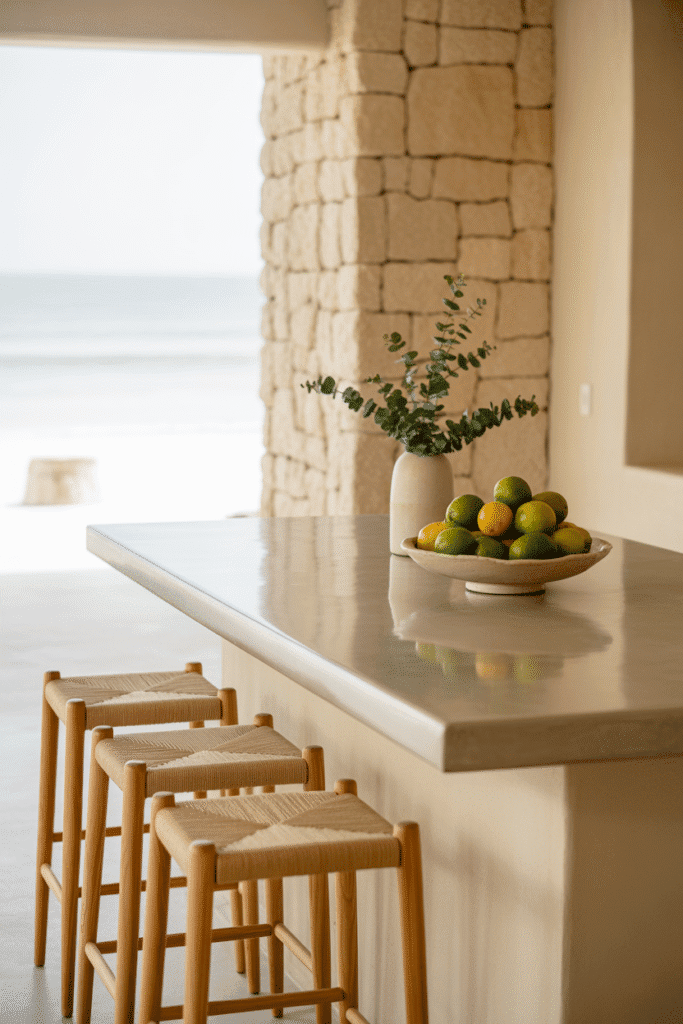
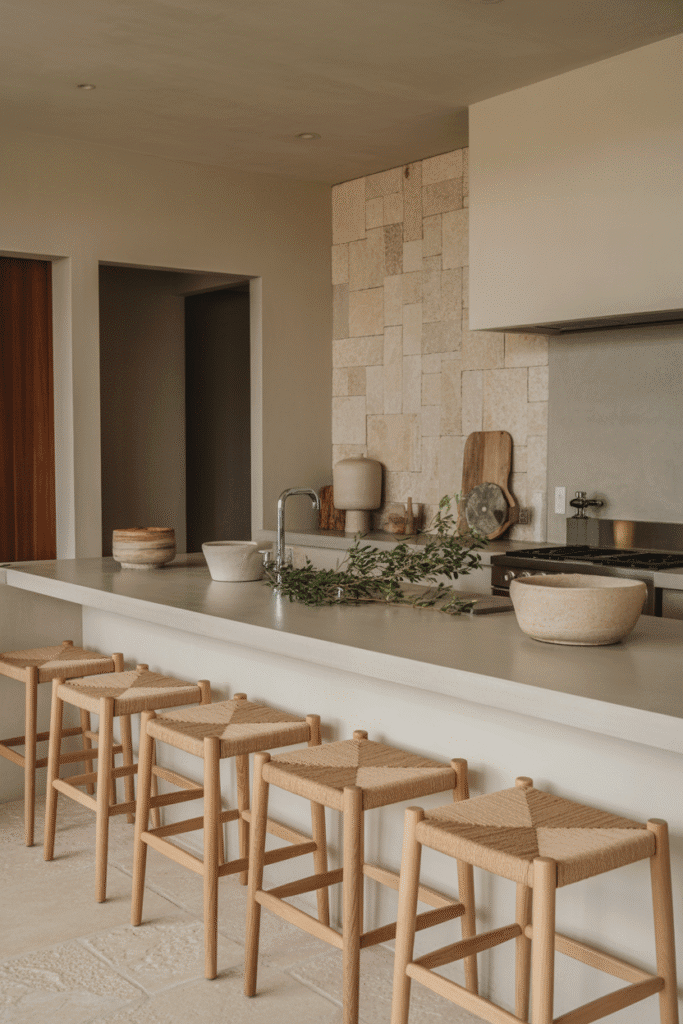
Follow a Minimalist Decor Approach
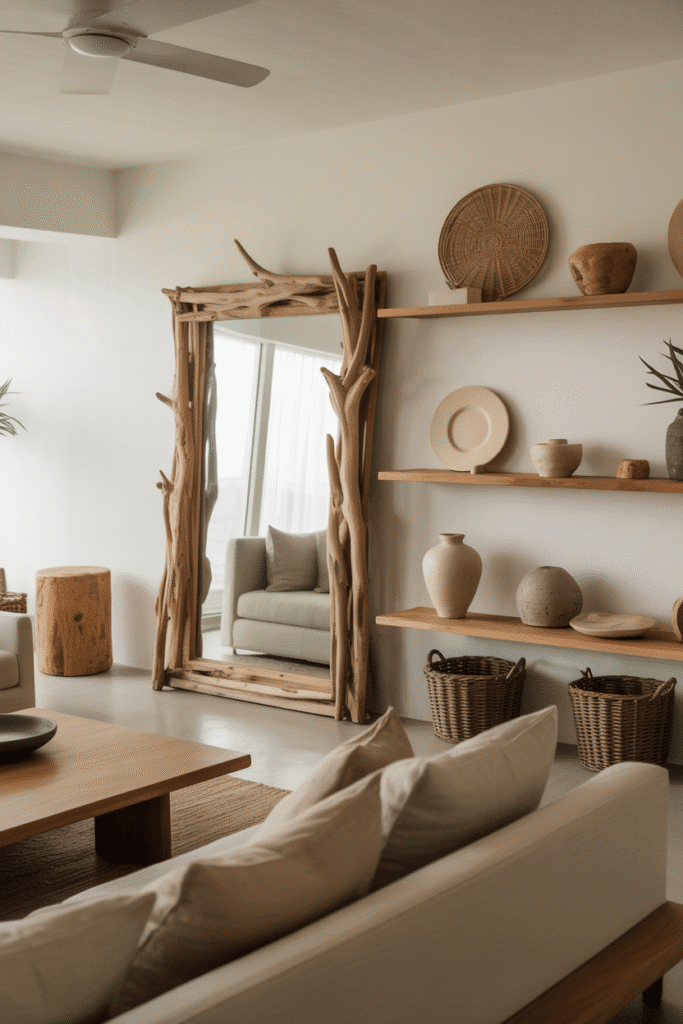
Organic modern is rooted in simplicity. Instead of clutter, focus on intentional decor pieces like handmade ceramics, sculptural vases, or artisan baskets. A good rule of thumb is: if a piece doesn’t serve a purpose (functional or aesthetic), don’t include it. Experts often use the “one statement piece per room” approach — for example, a large driftwood mirror in the living room or a handwoven tapestry in the bedroom.
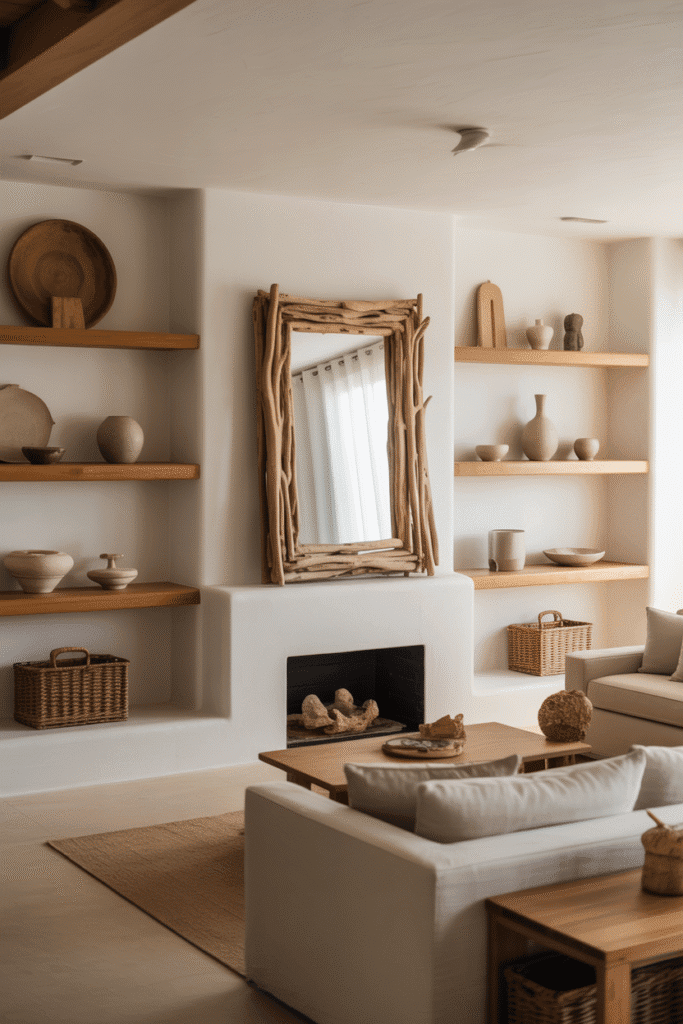
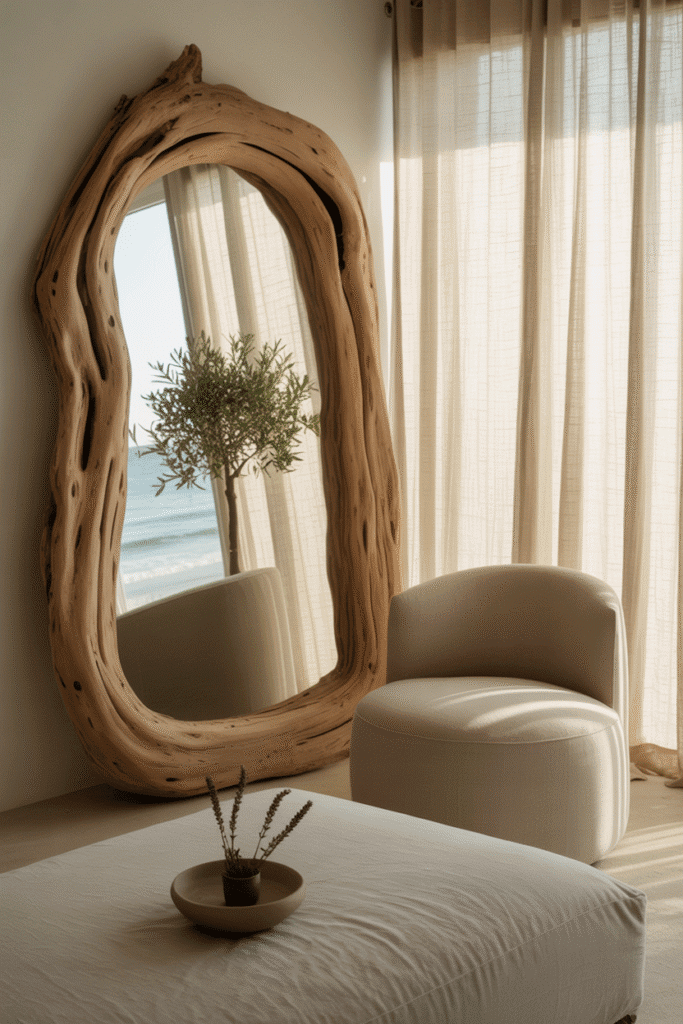
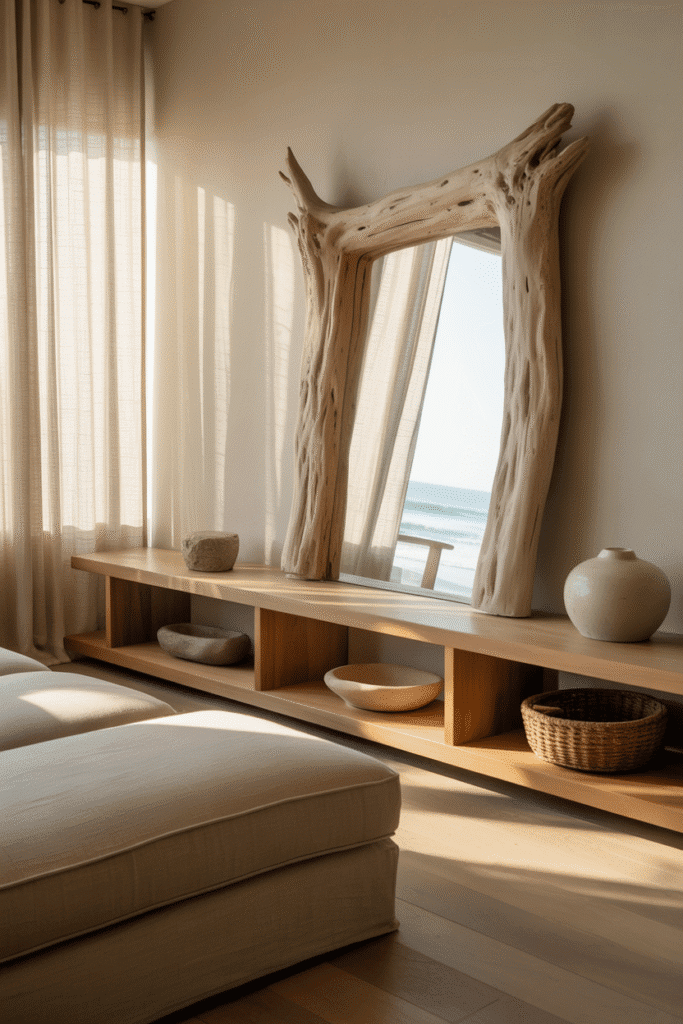
Choose Earthy Artwork and Wall Decor
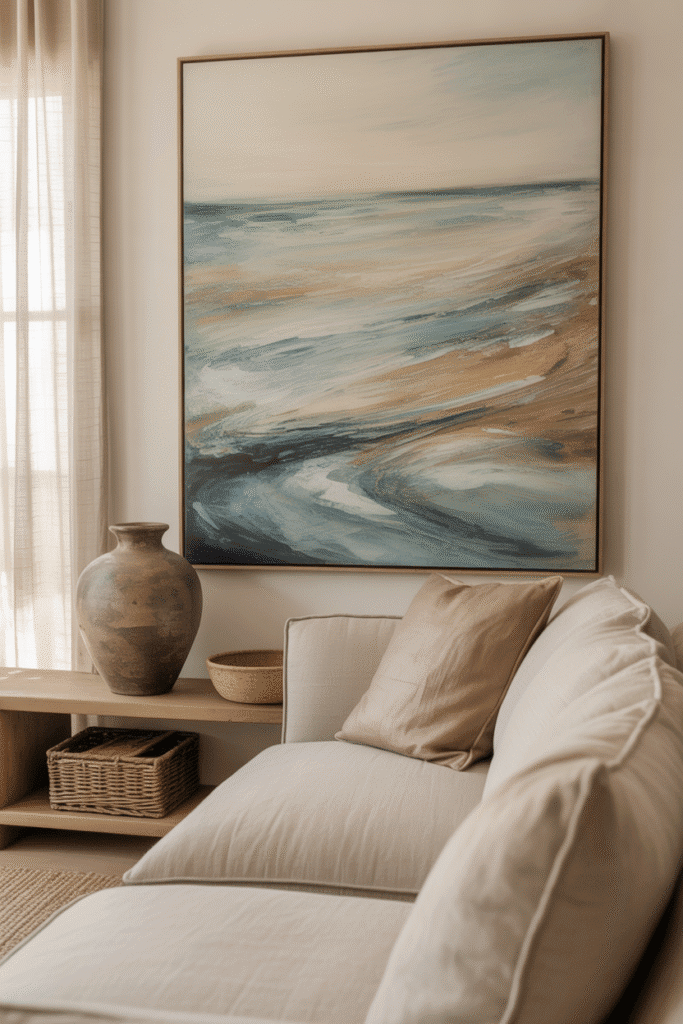
Wall decor should feel natural and understated. Opt for ocean-inspired abstract paintings, framed botanical prints, or textured wall hangings in jute or linen. For a gallery wall, stick to muted frames (wood or matte black) and consistent color palettes. A coastal-inspired tip: add a large-scale piece of art in earthy tones above the sofa or bed as the room’s focal point.
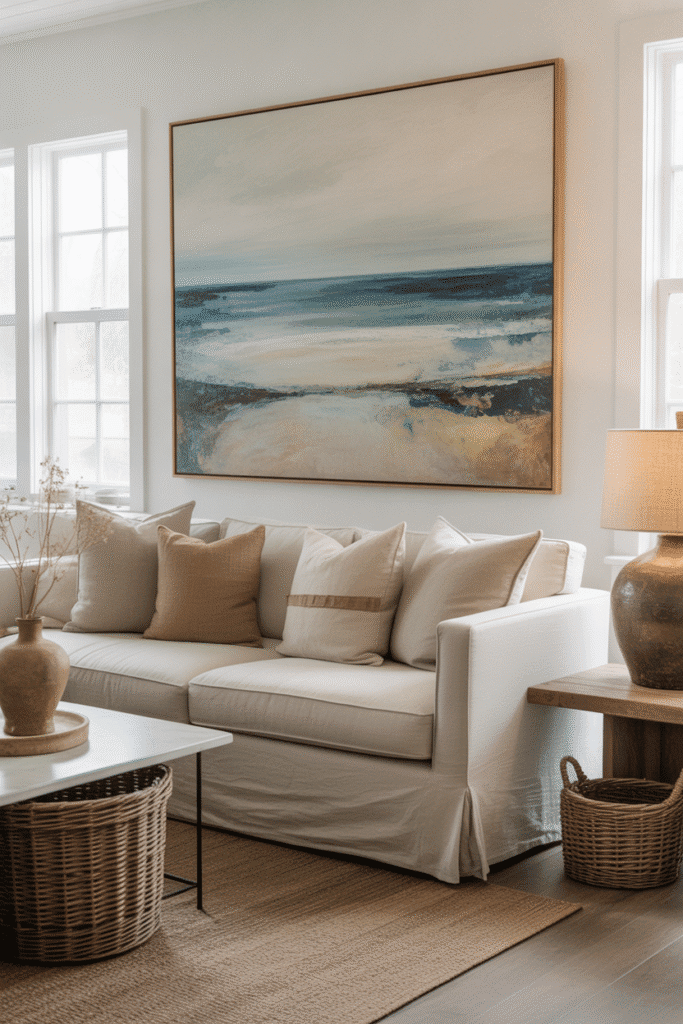
Layer Cozy Rugs for Texture
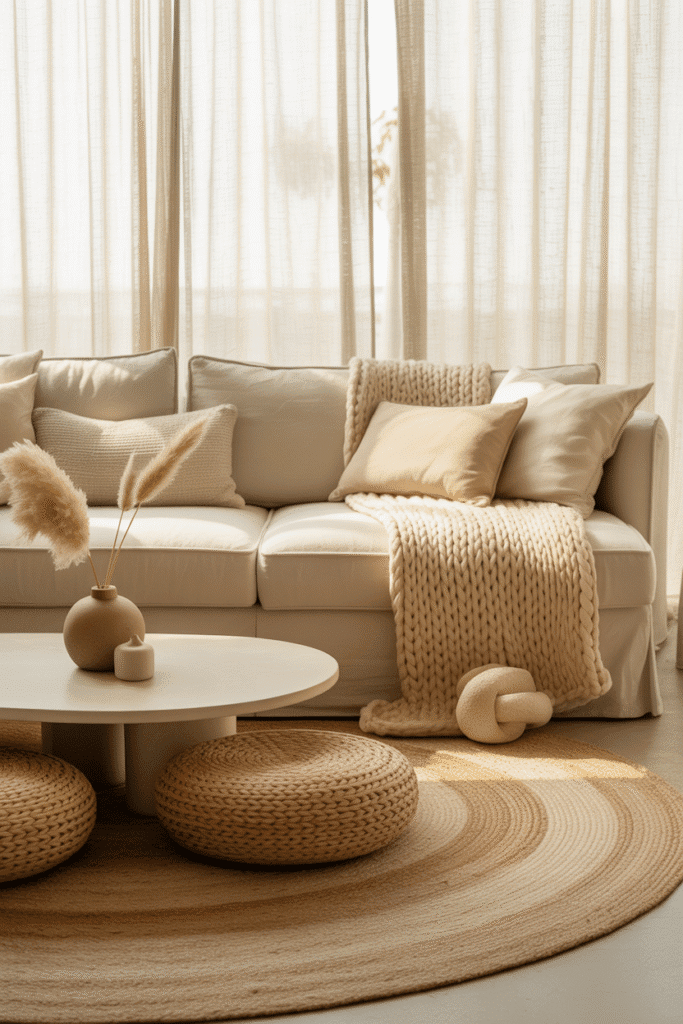
Rugs are a great way to add warmth and texture. Start with a jute or sisal rug as a natural base, then layer with a soft wool or cotton throw rug. This technique softens the organic modern minimalism and makes living rooms or bedrooms feel cozier. For coastal homes, stick to earthy patterns or subtle stripes in sand, gray, or ocean blue.
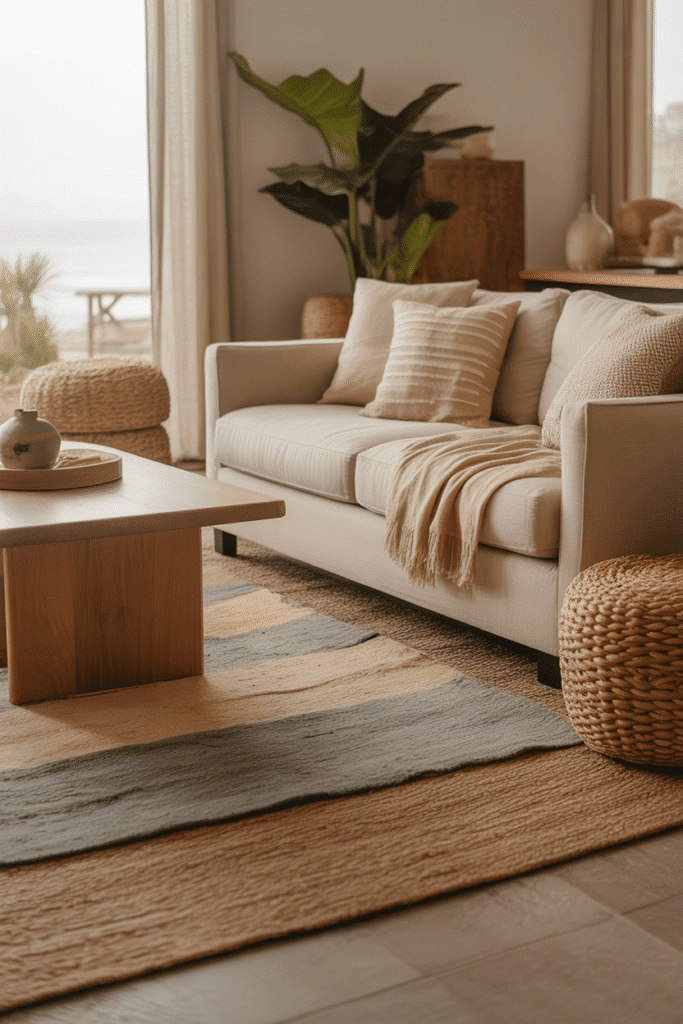
Create Outdoor Living Spaces
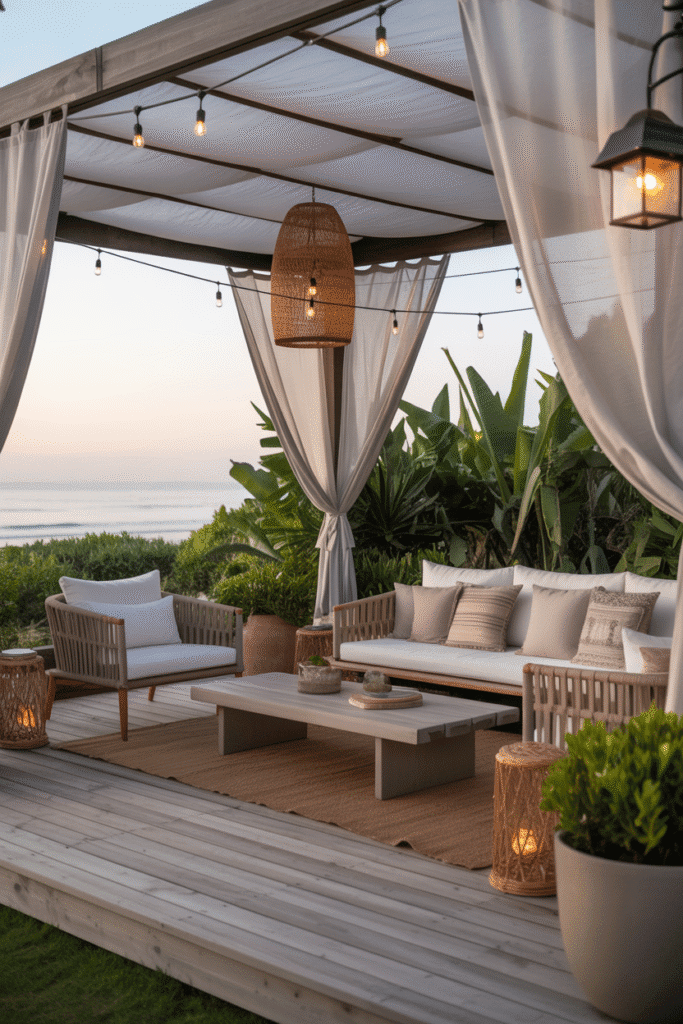
Your beach house shouldn’t stop at the walls. Build wooden decks, pergolas, or stone patios to extend the living area outdoors. Furnish with neutral outdoor sofas, woven chairs, and large umbrellas for shade. Experts suggest using weather-resistant fabrics in soft tones, ensuring your outdoor area feels like a natural extension of your indoor living room. Adding lanterns or string lights creates evening coziness by the sea.
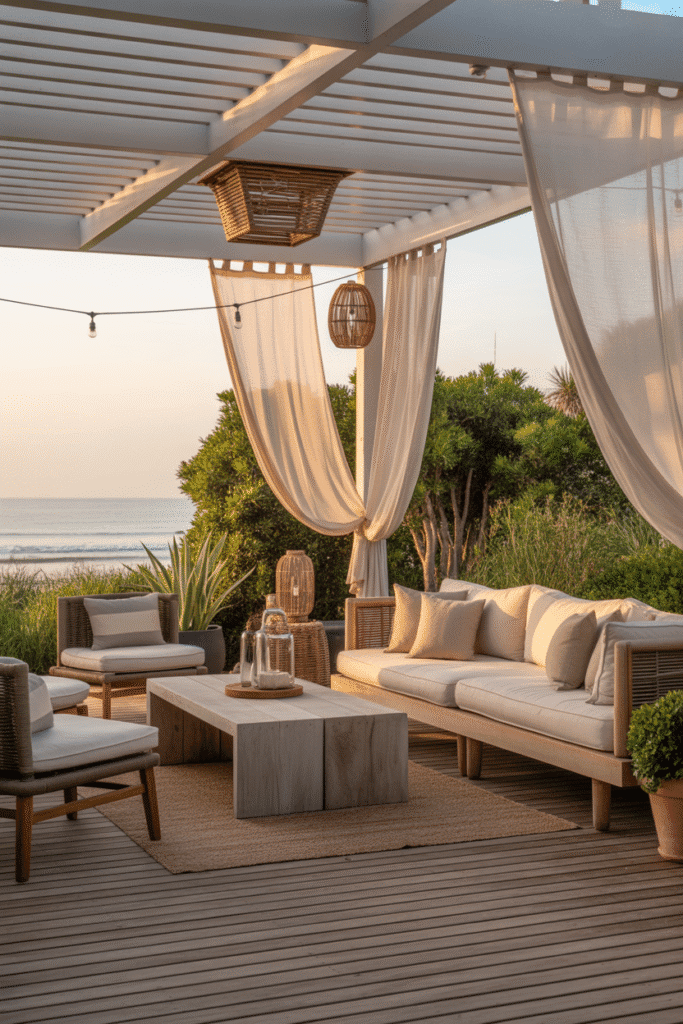
Pick Furniture with Organic Shapes
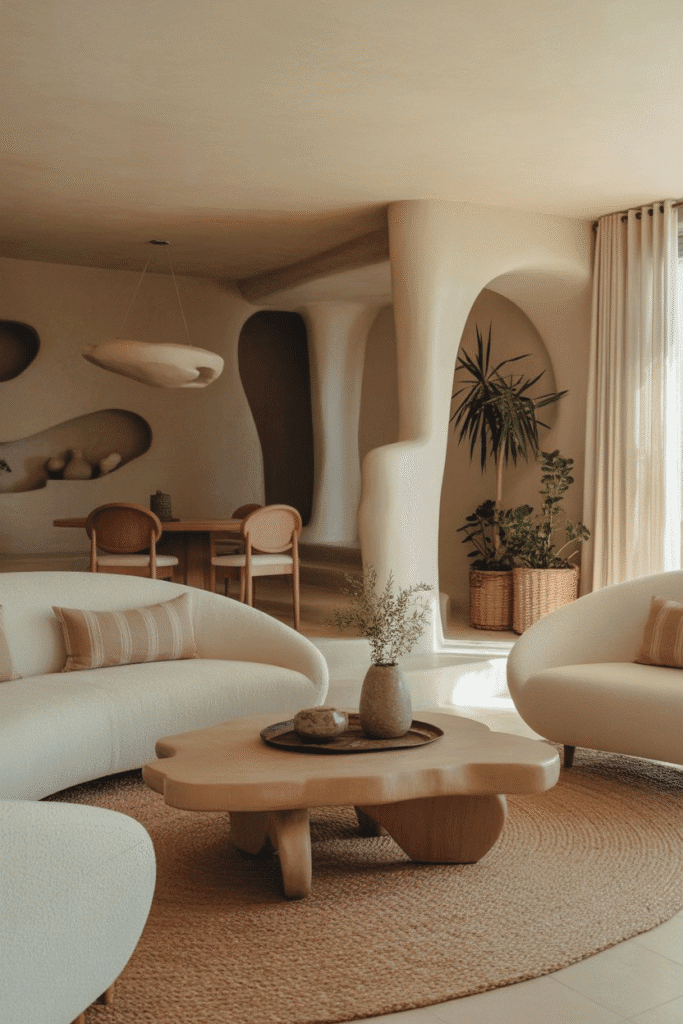
Avoid harsh, boxy furniture. Instead, choose rounded sofas, curved coffee tables, and sculptural accent chairs. Organic shapes mimic nature’s flow and soften the clean lines of modern design. When selecting pieces, look for sustainable materials like FSC-certified wood or bamboo. This not only supports eco-friendly living but also keeps your design authentically organic.
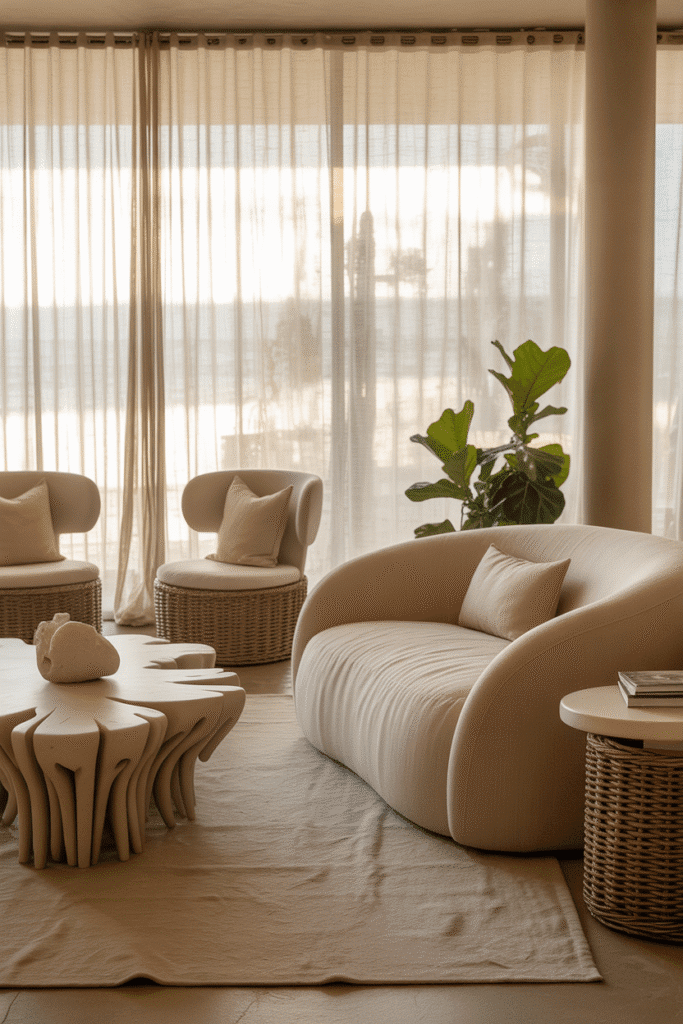
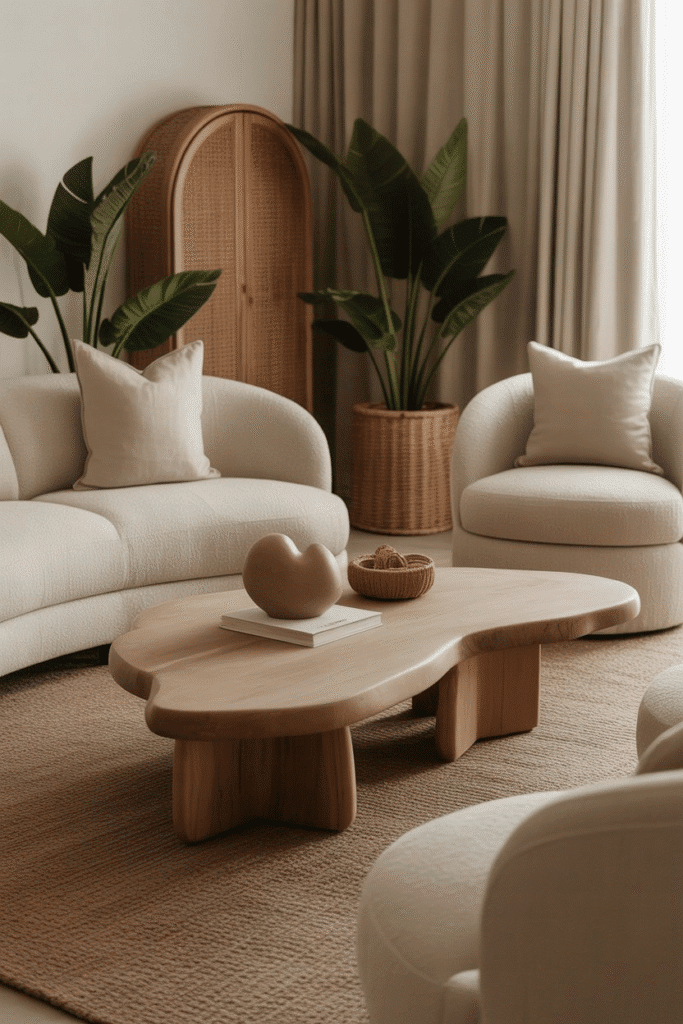
Use Subtle Coastal Elements
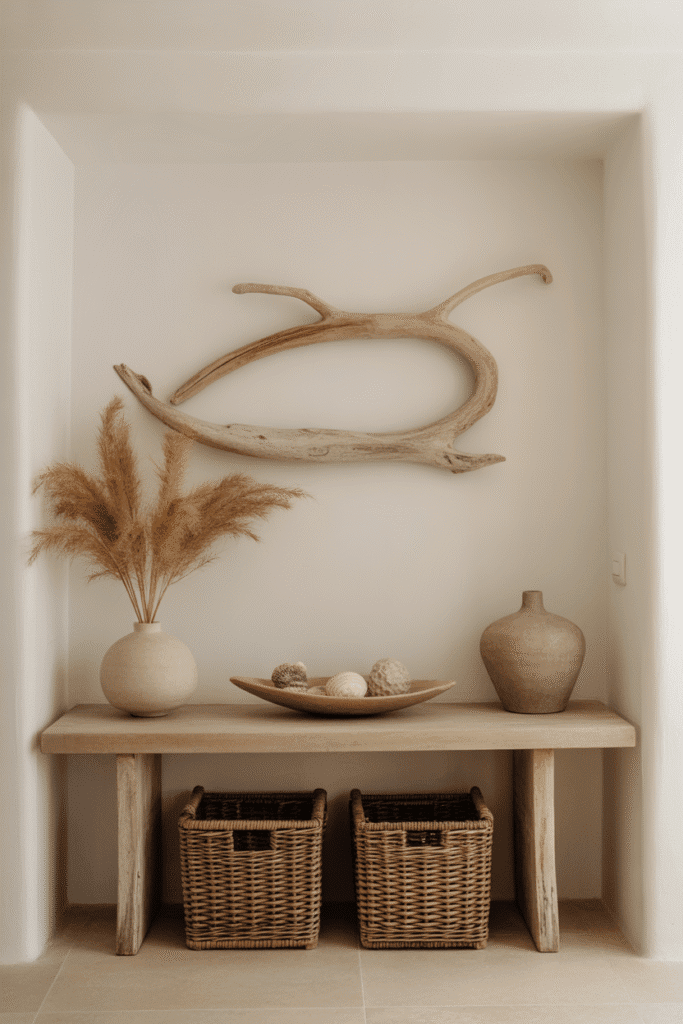
The trick to coastal décor is subtlety. Instead of filling the room with seashells and anchors, add one or two coastal accents — a bowl of seashells on the coffee table, a piece of driftwood art, or woven rope baskets. Experts emphasize restraint: let the textures and colors do most of the coastal storytelling, while accessories remain understated.
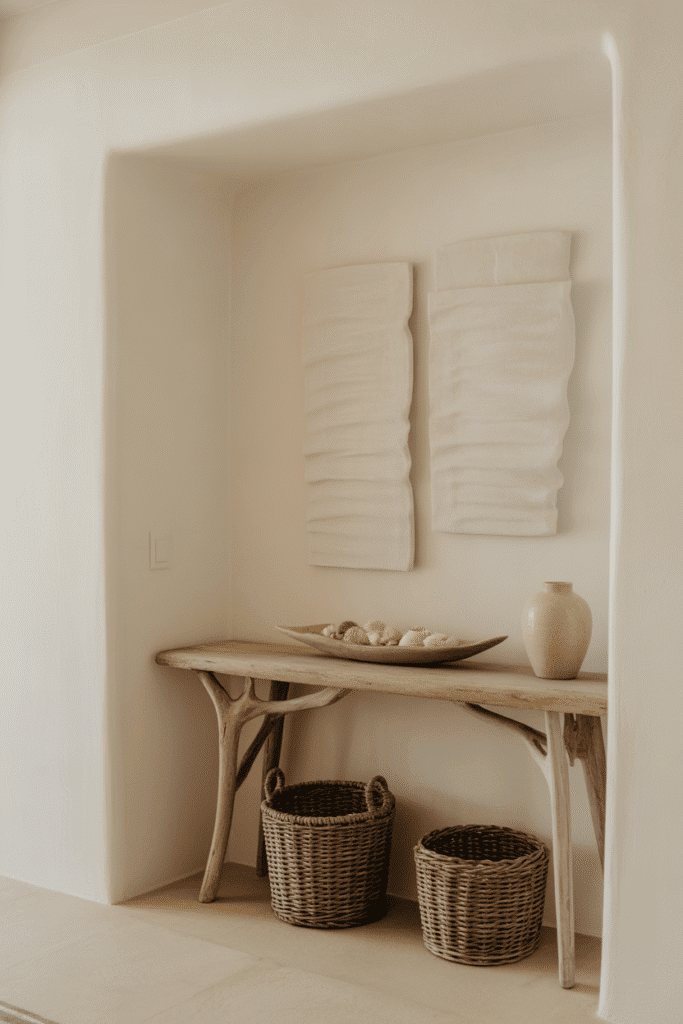
Focus on Soft Ambient Lighting
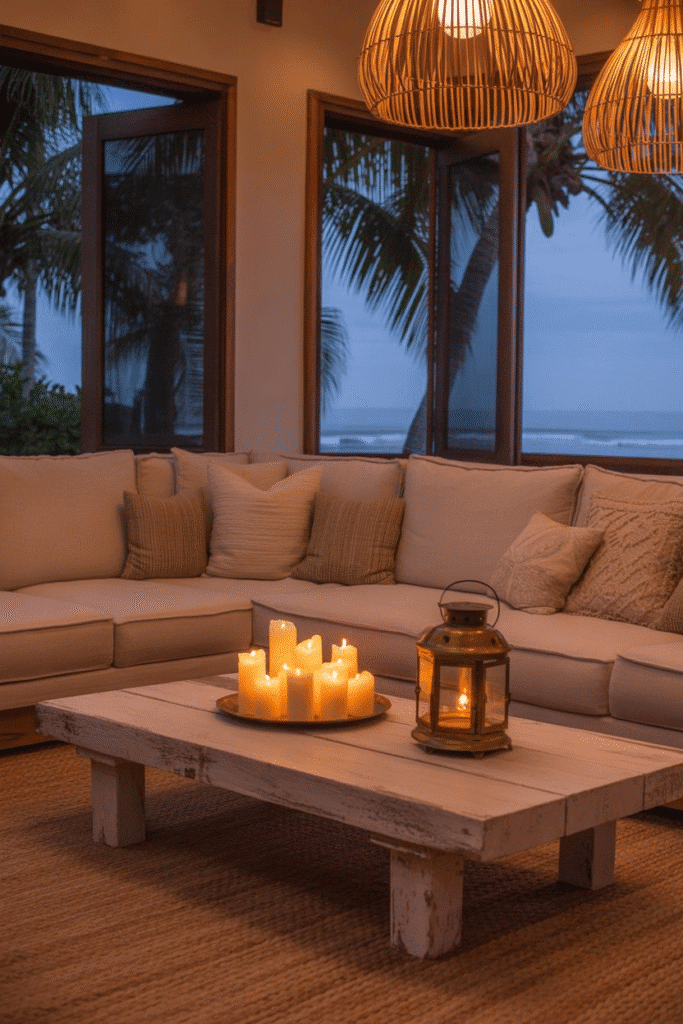
In the evenings, shift from bright overheads to soft, layered lighting. Candles, lanterns, and dimmable fixtures create a cozy glow that mirrors a beach sunset. Experts recommend warm-toned LED bulbs (2700–3000K) to replicate natural warmth. Place small table lamps near reading nooks or use recessed floor lights to highlight architectural features like wood beams or stone walls.
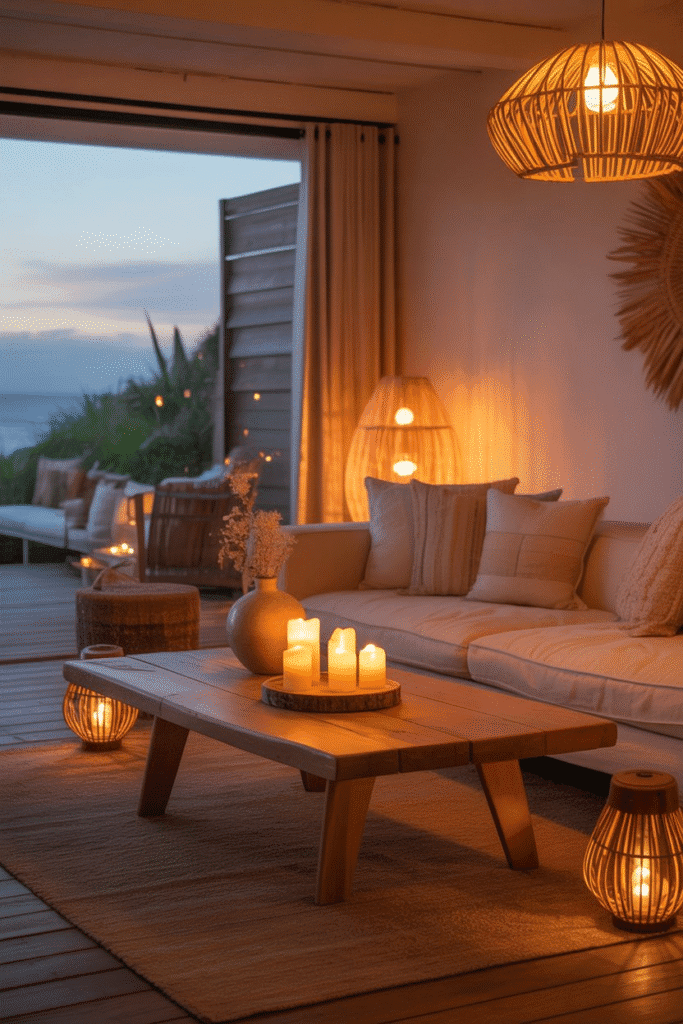
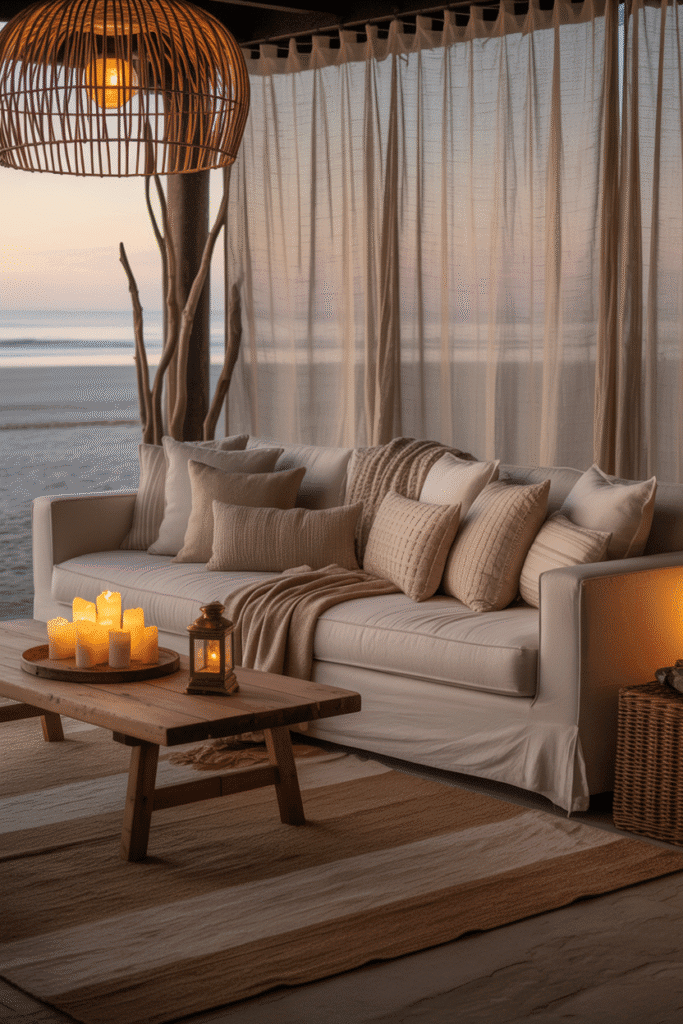
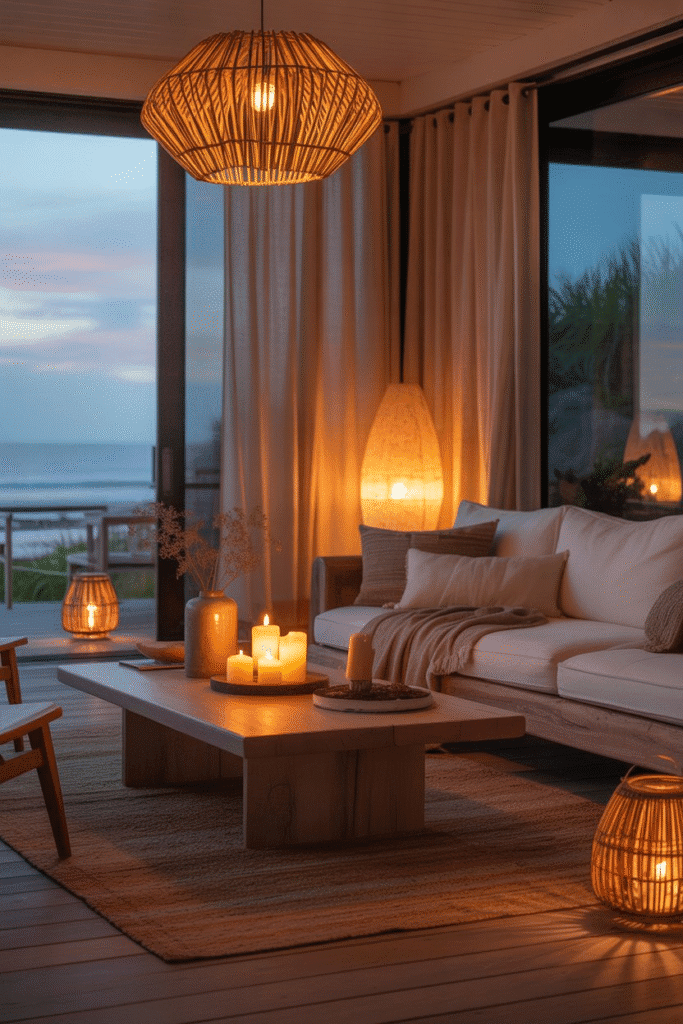
Invest in Functional but Stylish Storage
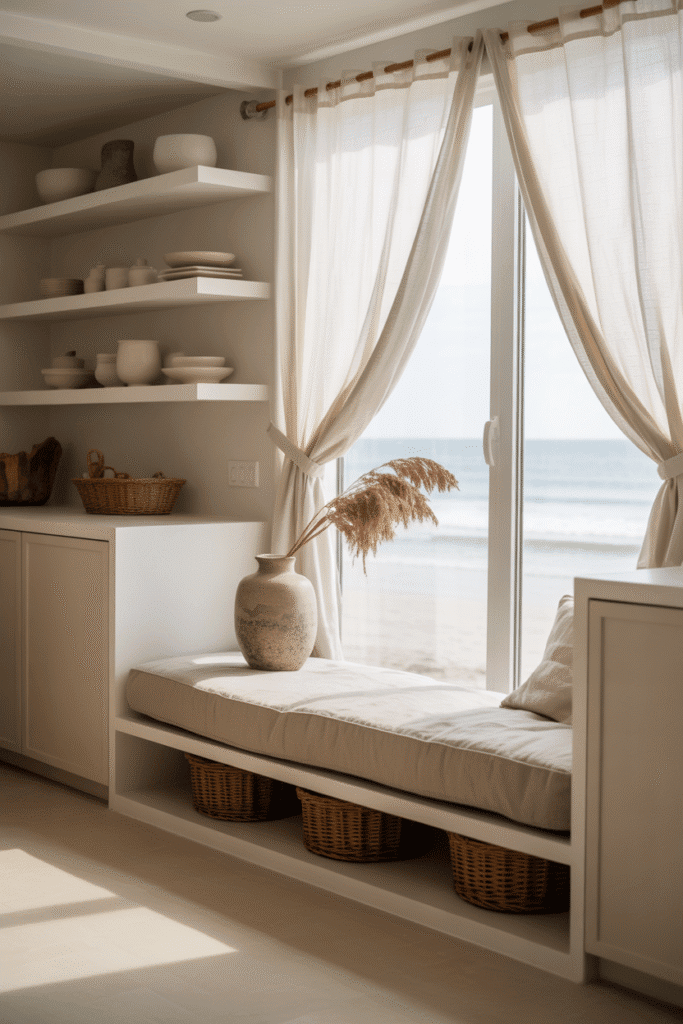
Clutter disrupts the organic modern vibe. Use built-in cabinets, floating shelves, and woven baskets for stylish storage. Experts suggest closed storage for everyday items and open shelving for decorative displays. Keep surfaces clean but accessorize intentionally: a shelf with pottery, books, and a single plant feels both functional and beautiful.
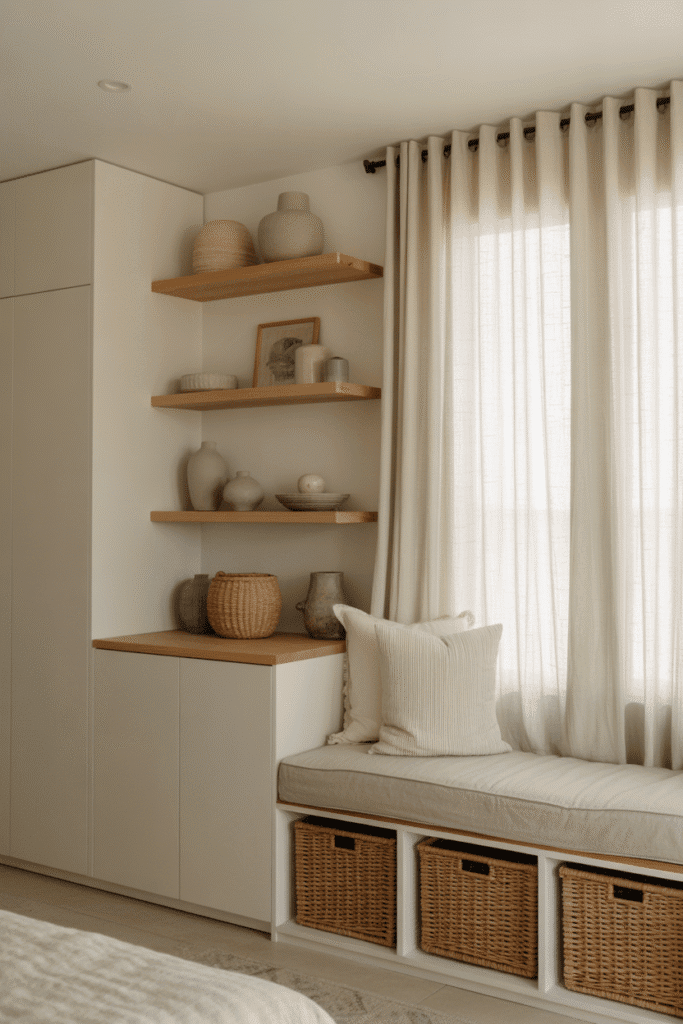
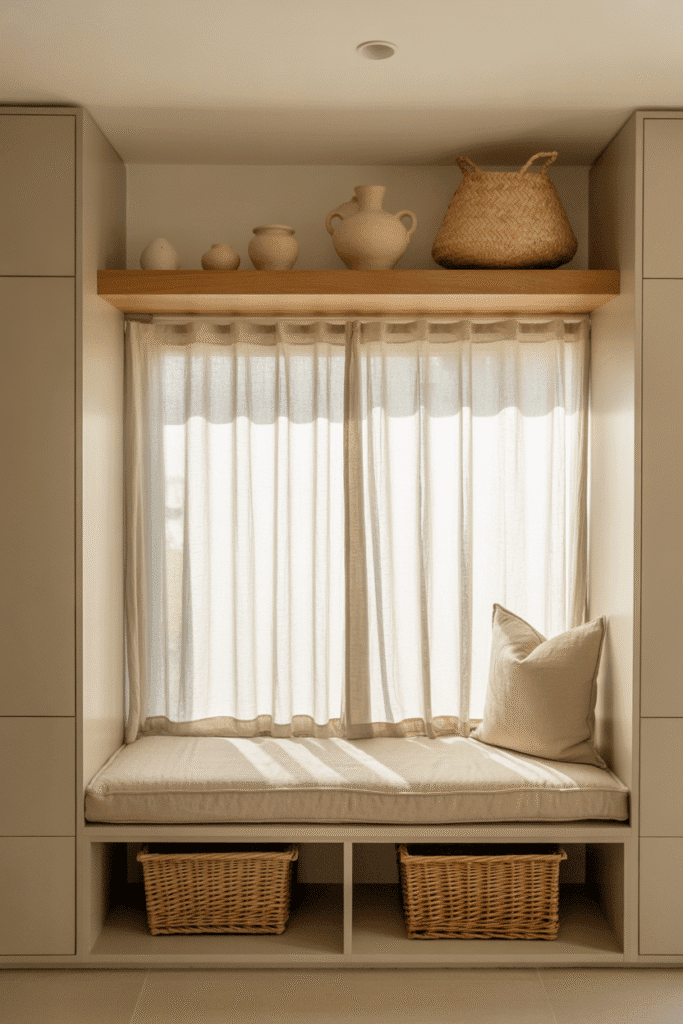
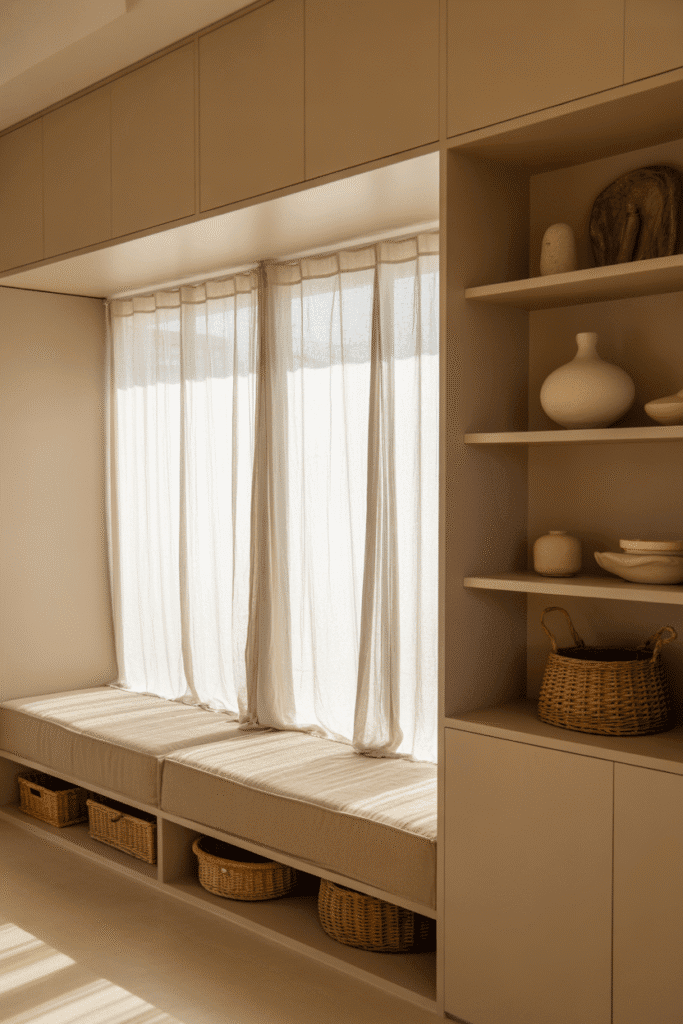
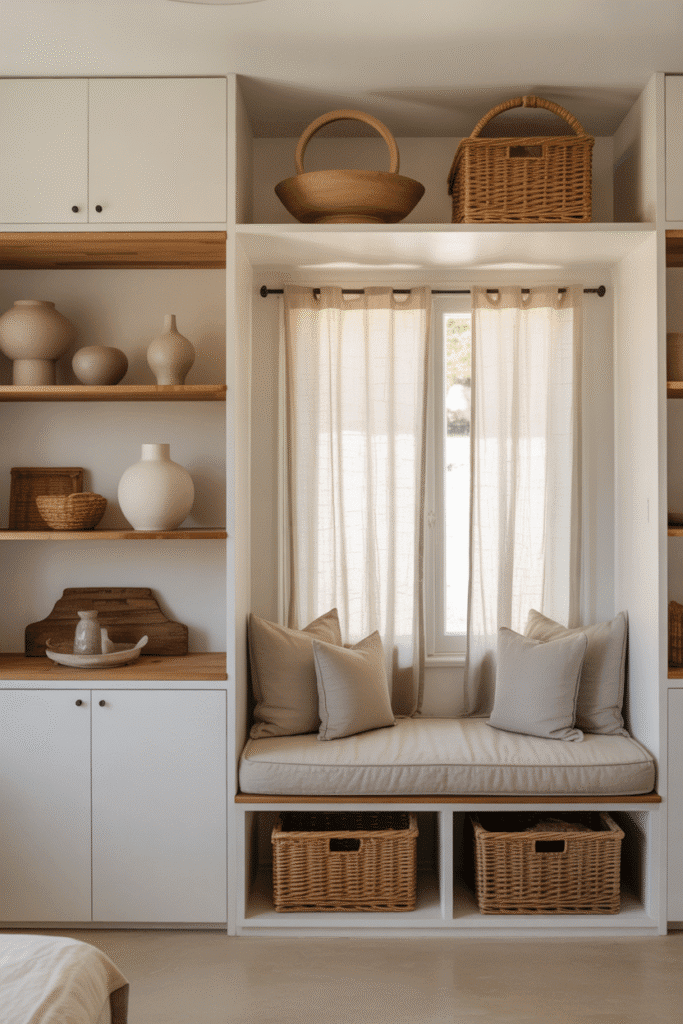
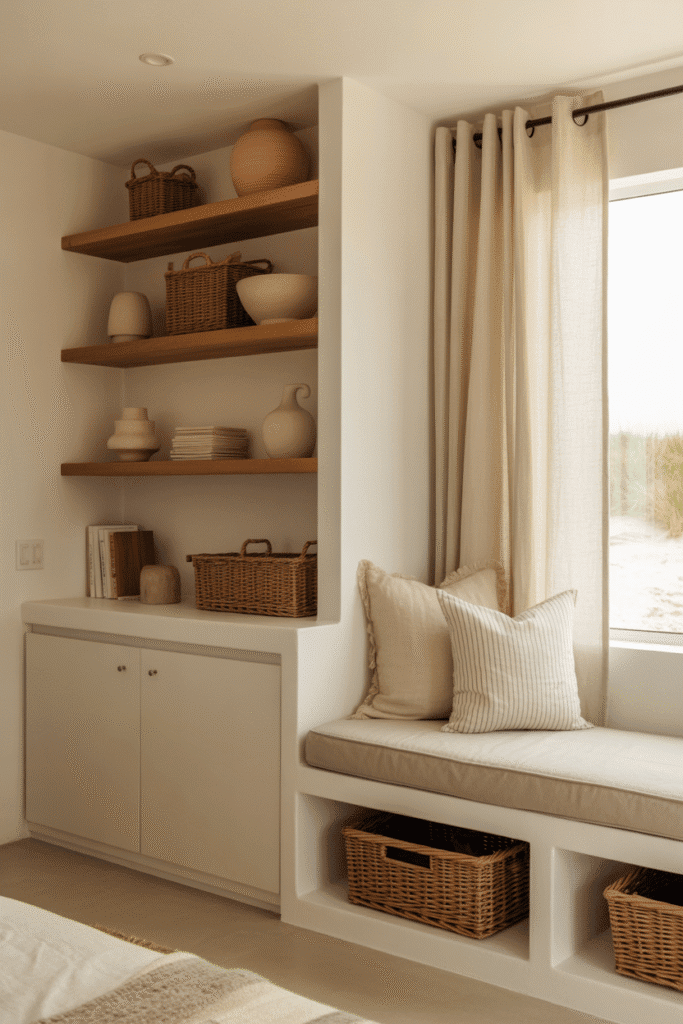
Add DIY Decor Touches for Personality
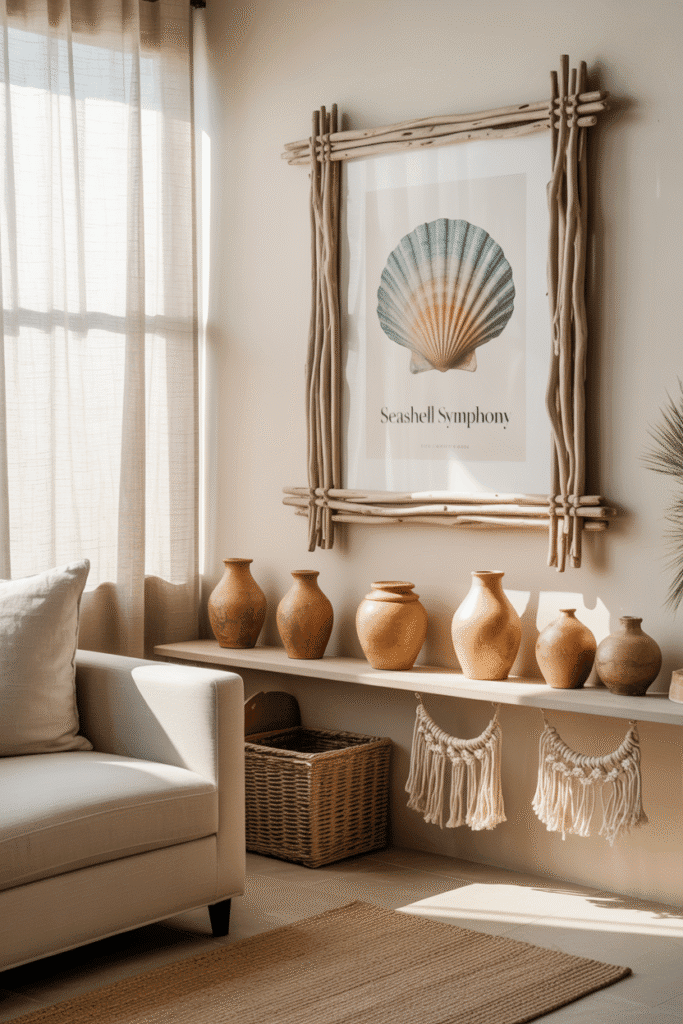
The best organic modern homes feel personal. Add DIY driftwood frames, hand-painted clay pots, or macrame wall hangings to give your home a handmade touch. If you’re crafty, try repurposing old furniture with natural finishes or creating mood boards with shells and stones from your local beach. These DIY details make your beach house feel authentic and uniquely yours.
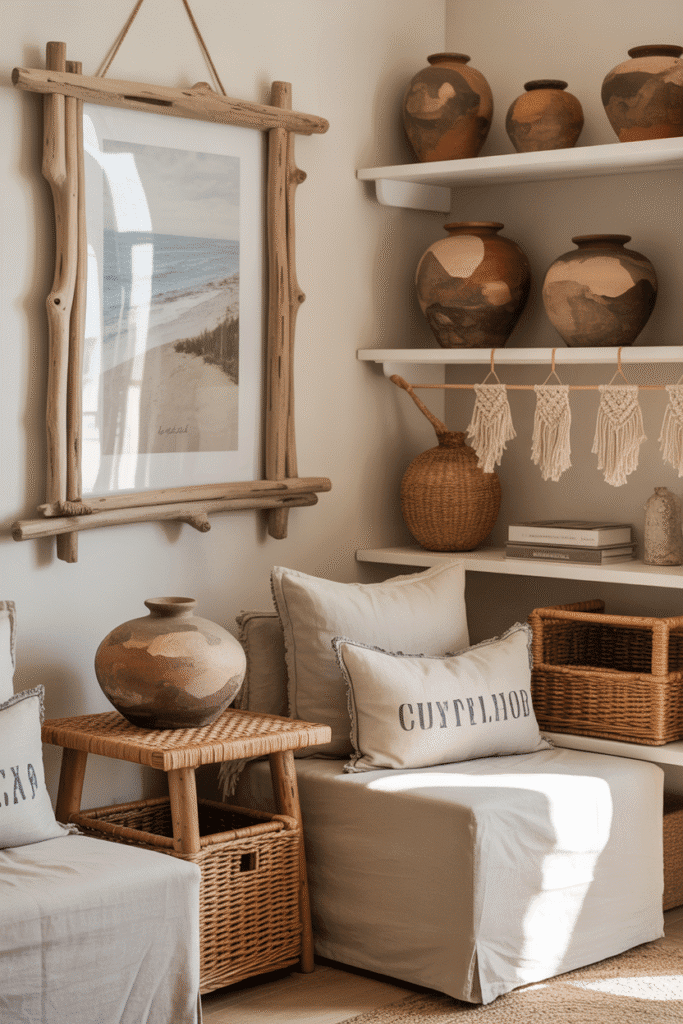
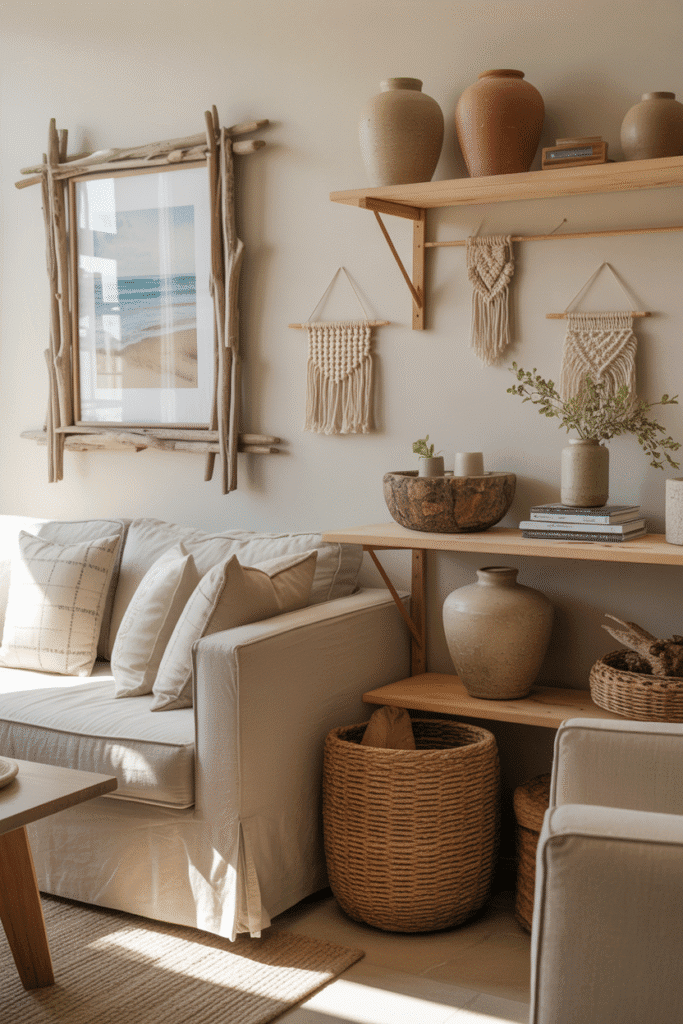
Your Next Step: Bringing It All Together
Designing an organic modern beach house is not about following strict rules — it’s about creating harmony between minimalism and nature, between comfort and style. The key is to balance textures, keep clutter at bay, and let the beauty of natural materials shine.
Start small by refreshing a single room with neutral tones and natural fabrics. Then add layers of wood, stone, and carefully chosen décor. Over time, your home will naturally evolve into a space that feels like a calm coastal retreat — warm, stylish, and uniquely yours.
Think of this guide as a toolbox of inspiration. You don’t have to use all 17 ideas at once. Instead, pick the ones that resonate with your lifestyle and gradually build your own version of a beach house that embodies serenity, balance, and timeless beauty.
✨ And remember — the best homes don’t just look good, they feel good.
FAQs
Q1: What defines an organic modern beach house?
It’s a home that combines clean modern lines with natural materials, neutral colors, and subtle coastal accents.
Q2: How can I make my beach house cozy without clutter?
Layer rugs, use textured fabrics, and focus on intentional décor pieces like pottery and woven baskets.
Q3: Can organic modern style work in small homes?
Yes — use light colors, maximize natural light, and keep furniture multifunctional.
Q4: What’s the best flooring for an organic modern beach house?
Wide-plank wood or polished concrete — both are natural, durable, and easy to maintain.
Q5: How do I balance coastal elements without overdoing it?
Pick one or two subtle accents (like seashells or driftwood) and let textures + colors carry the coastal theme.
